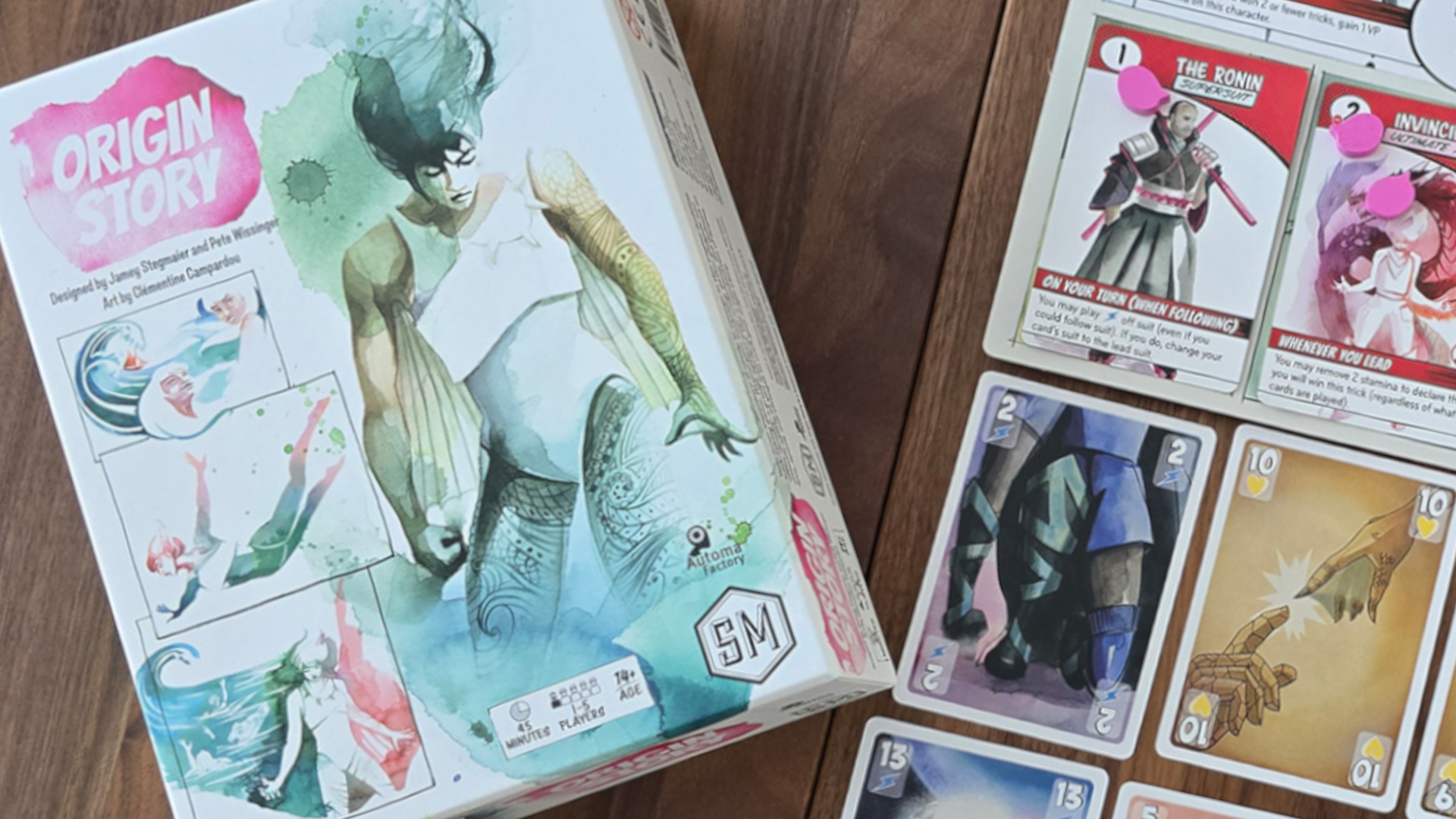The 6 best card games of 2026, reviewed and tested by experts
These essential recommendations won't get lost in the shuffle
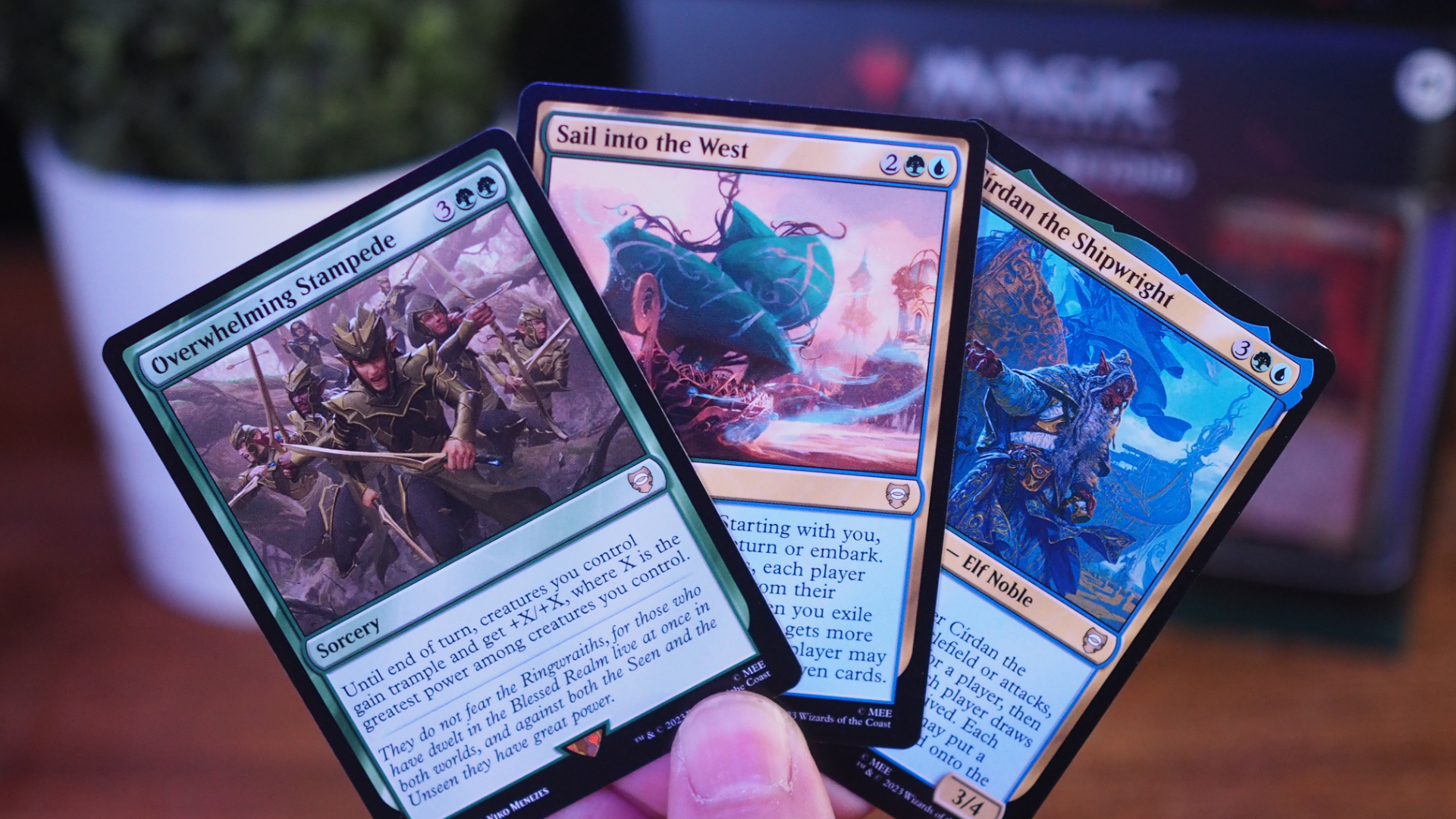
Knowing where to start with the best card games can be a headache. You aren't exactly short on choice, and that's before we even begin talking about trading card games. Suffice to say, it can feel pretty impenetrable if you're new to all this.
That's where the GamesRadar+ experts and I come in. We've been covering the industry professionally for years and have decades of experience playing the best card games on top of that (as noted in our 'how we test' section below), so our team's got plenty of recommendations we think you should try. Want the pinnacle of everything card games can be, for example? Magic: The Gathering is our top choice, and I think it's a must-buy due to an unmatched blend of tactical depth with evocative worldbuilding. Hoping to play something your kids will love, on the other hand? Sushi Go is an excellent pick, because it's easy to get into yet oh-so enchanting.
Just like our guide to the best board games, you'll also find that these choices span a range of skill levels and budgets. No matter what you're in the mood for, you should discover something to suit you here. And if you're not sure what you want, don't stress; we can help with this advice on how to choose card games.
October 23, 2025: This guide has been given a significant update with all-new entries from 2025 for multiple categories, along with new 'how to choose' and 'how to test' sections to provide a better user experience.

Benjamin has been writing about tabletop at GamesRadar+ for almost seven years, but has covered games professionally for well over a decade. One of his first experiences with card gaming was via Magic: The Gathering in the mid-'90s, and he hasn't looked back since. He's currently enjoying Traitors Aboard, a great party card game about hidden roles.
Quick list
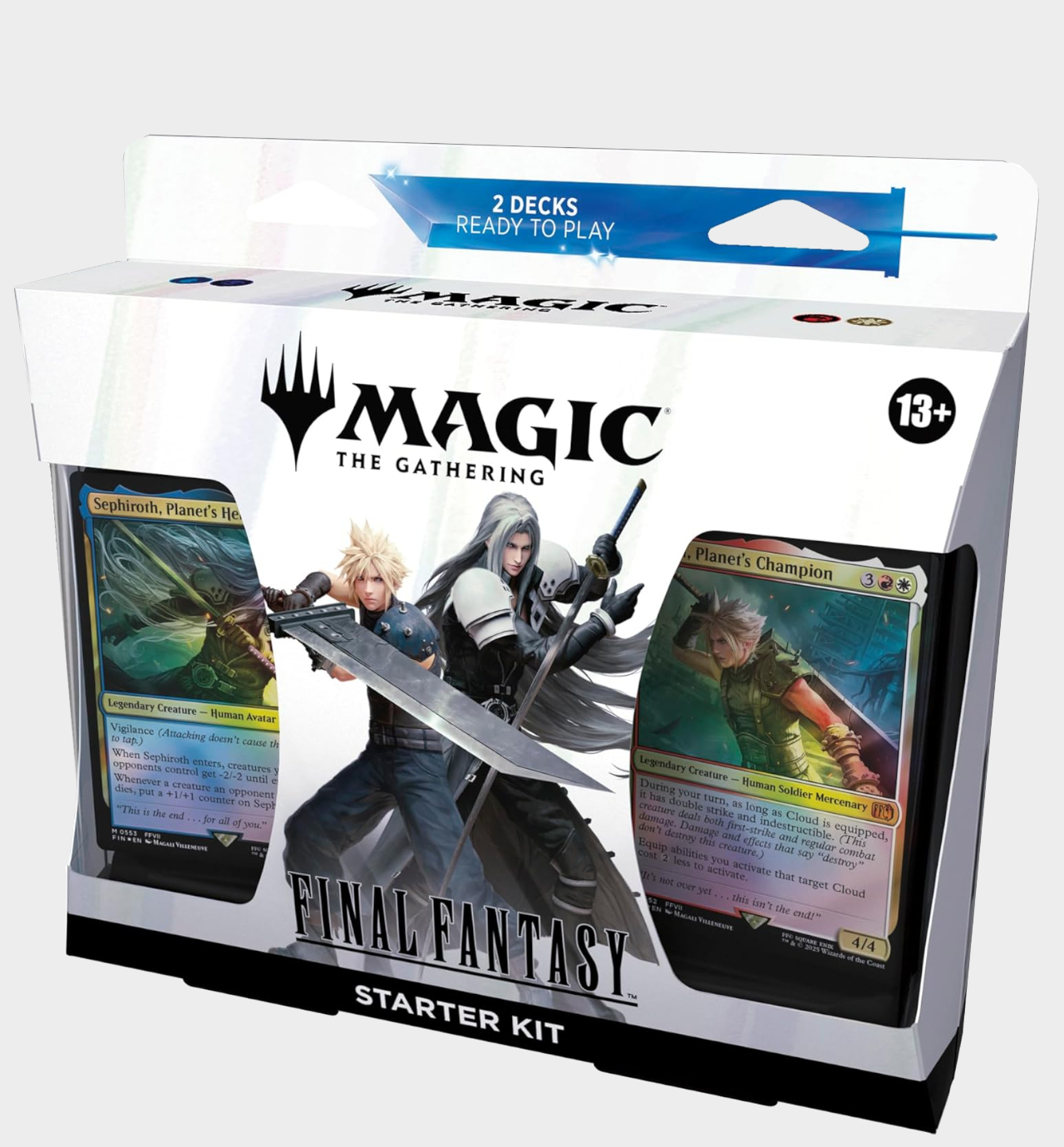
There's a reason MTG has dominated the charts for more than 30 years; it's the ultimate blend of strategy and replayability. The current starter set is an engrossing crossover with Final Fantasy, bringing the franchise to your table with gorgeous artwork.
Read more below

This award-winning card game is easy to learn, quick, and addictive enough that you'll want to go again as soon as your first match is over. Its small size makes it perfect for travel as well, so it's a great choice if you want something to take on vacation.
Read more below
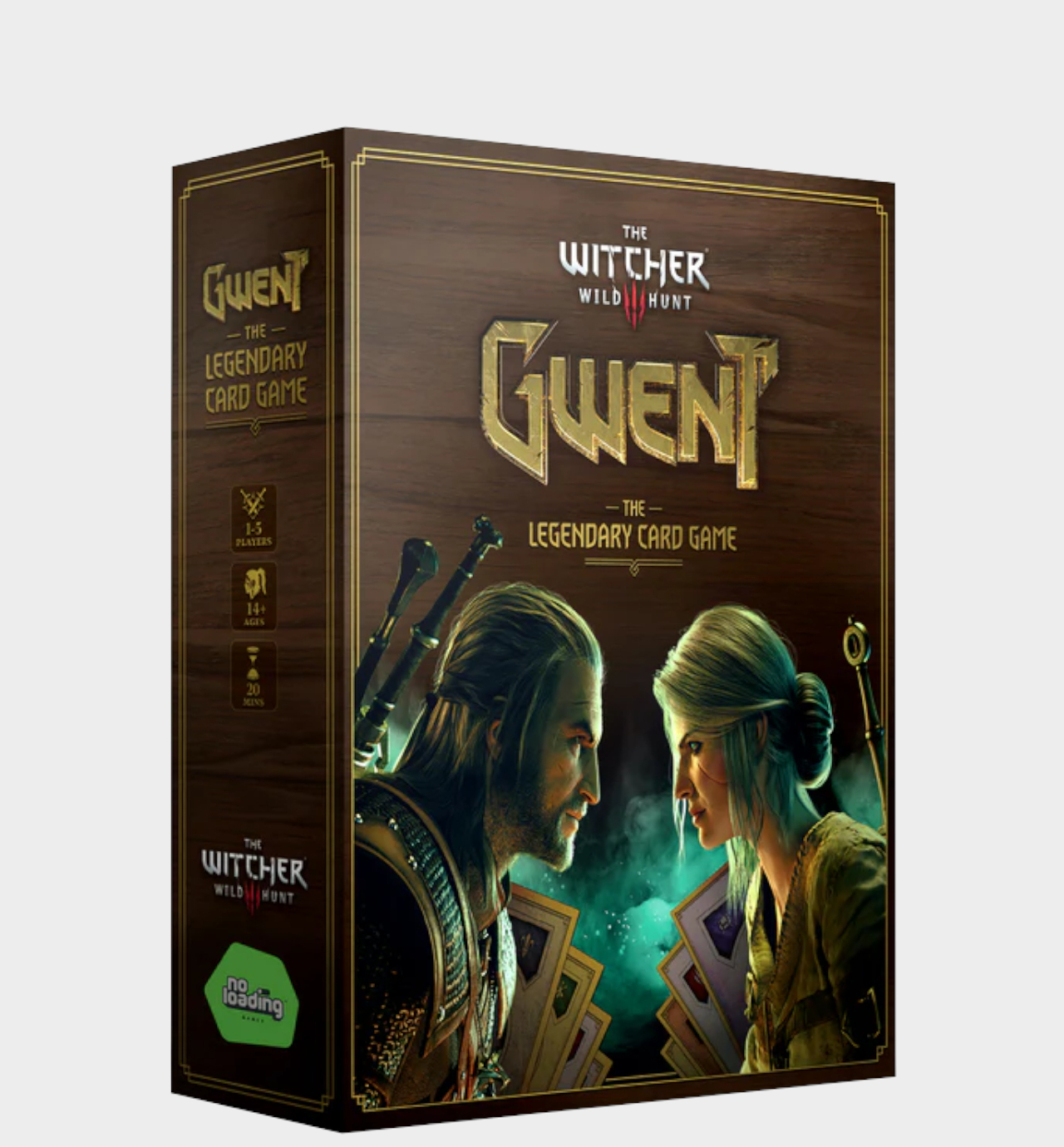
Toss a coin to your Witcher, because Geralt and co have made their way to tabletop with this adaptation of the hyper-popular Witcher 3 card game. None of Gwent's strategy has been lost in translation, and this is a reminder of why it's so beloved.
Read more below
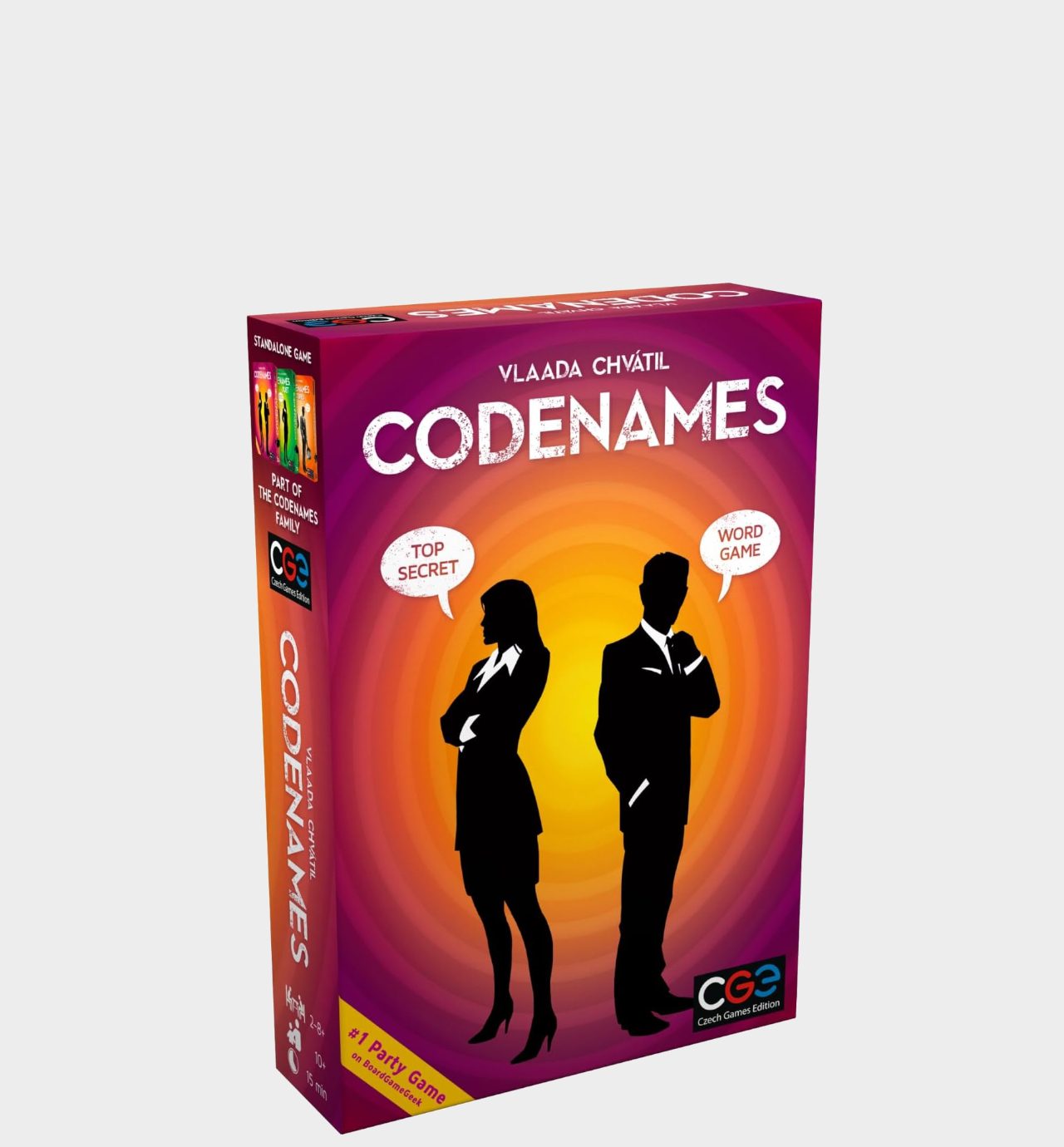
If you're trying to track down a good party card game, don't miss Codenames. This modern classic took the industry by storm a few years ago, and one match of this clever yet accessible word game should demonstrate why.
Read more below
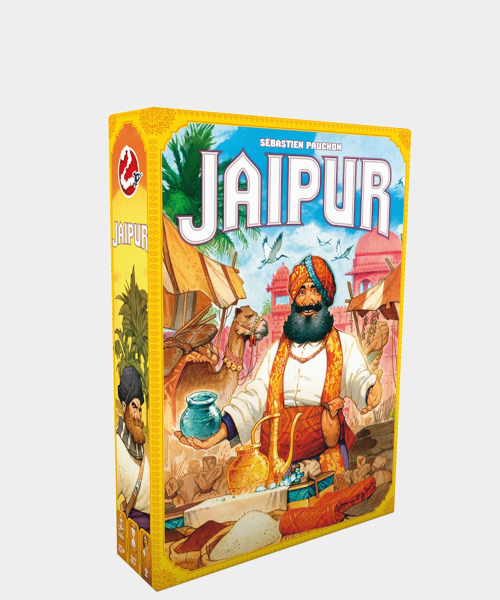
Easy to understand, hard to master, and good at leaving you wanting more – that's what makes Jaipur such an essential part of any collection. It's my wife and I's go-to when we travel, and I can't recommend it enough.
Read more below
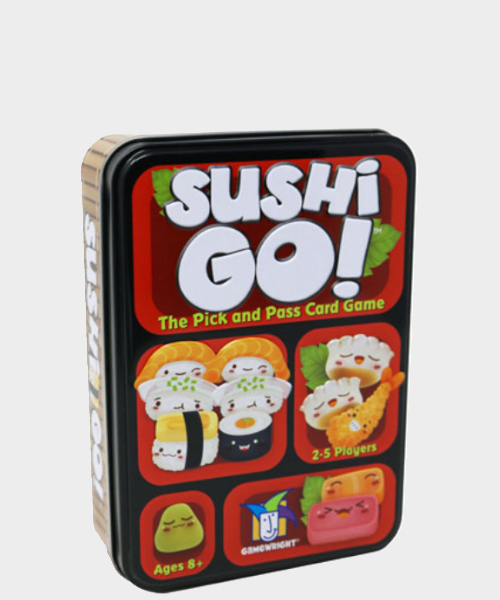
I've yet to find a better card game for kids than Sushi Go. Besides a short run-time and straightforward rules, it's endlessly replayable. Both you and your children will be happy to play this one over and over again.
Read more below
Best card game overall
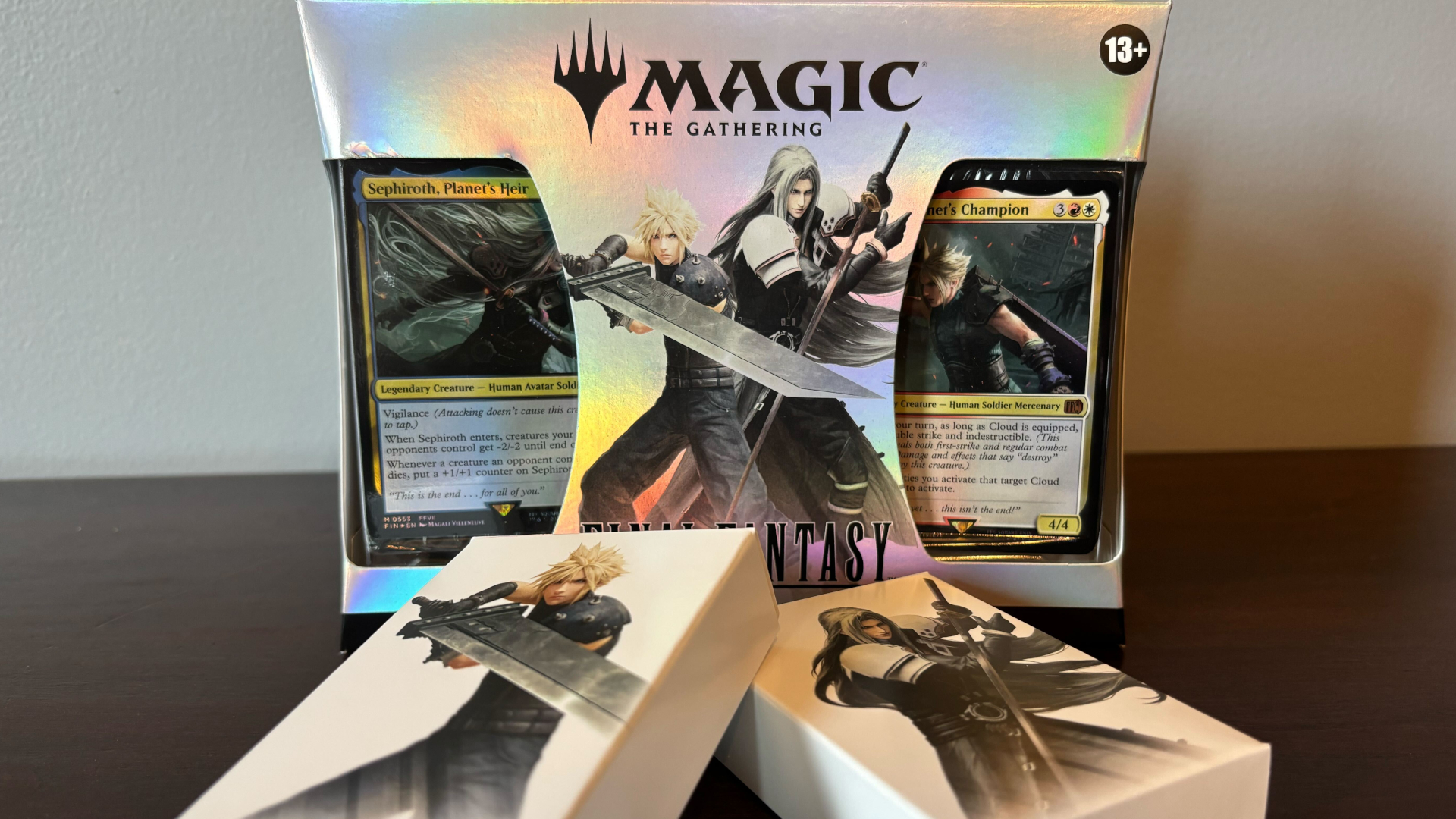
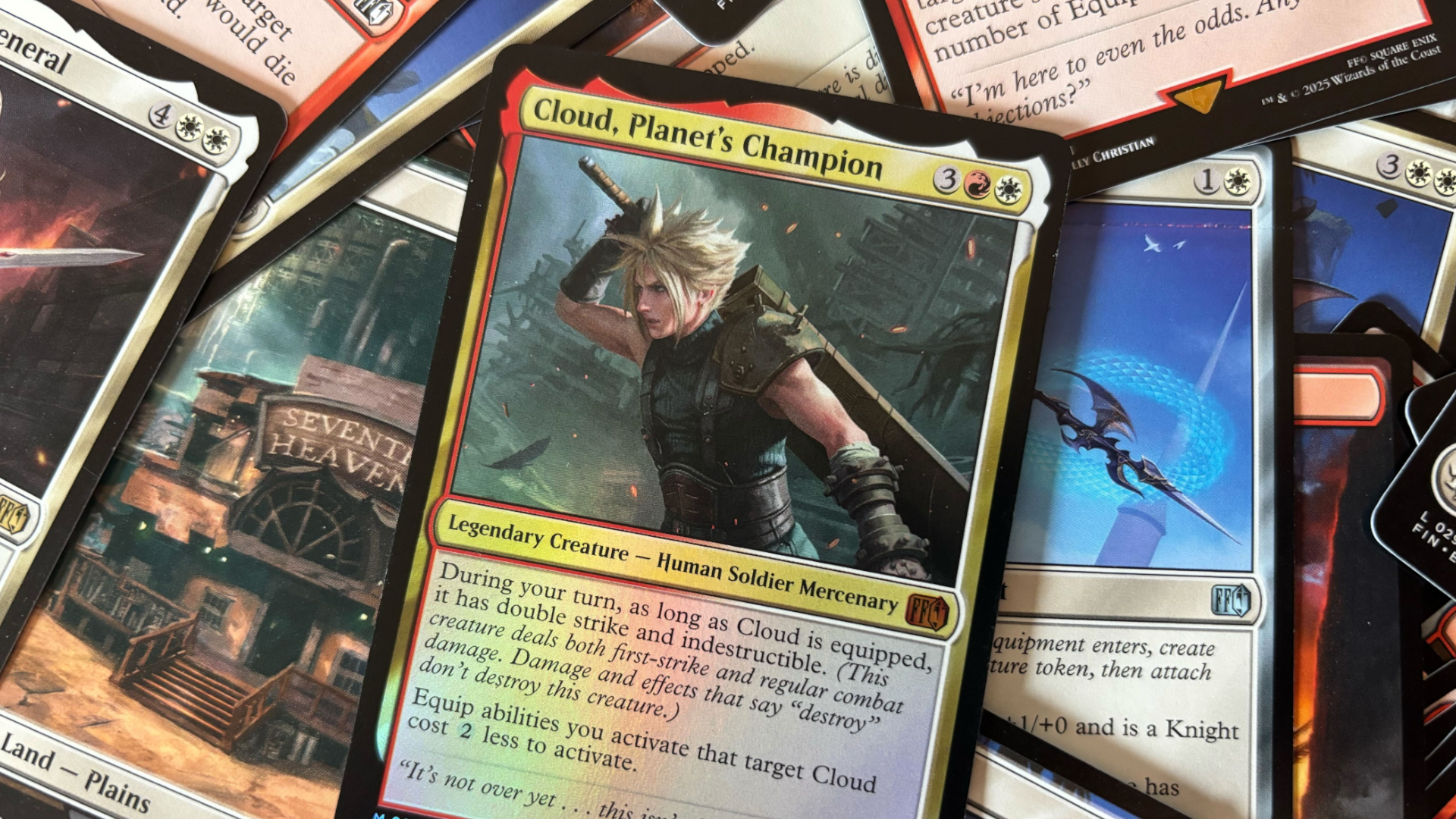
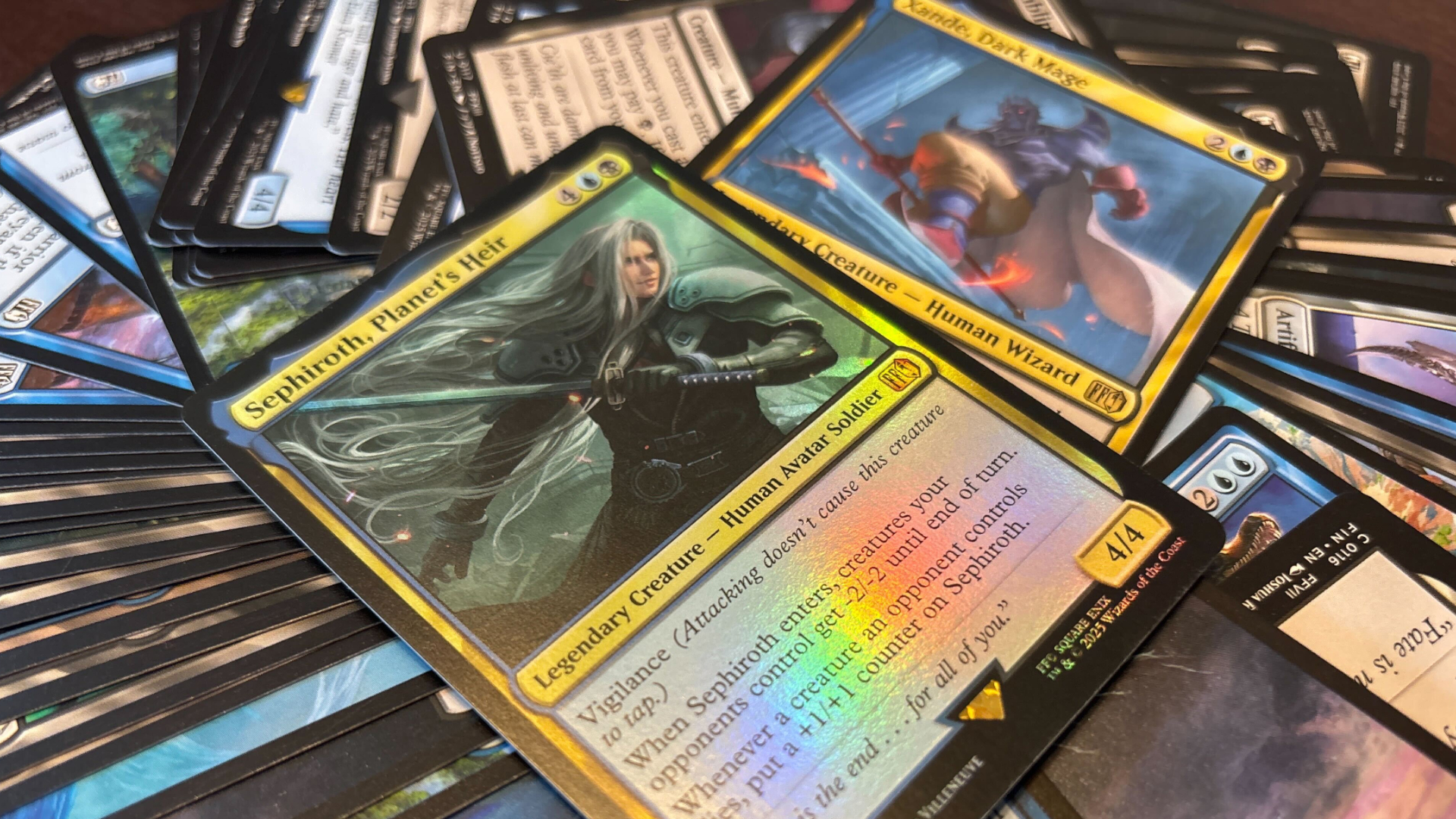
1. Magic: The Gathering
Our expert review:
Specifications
Reasons to buy
Reasons to avoid
With more than 30 years under its belt, Magic: The Gathering (or 'MTG' for short) is practically a household name when it comes to card games. It's arguably one of the best, too; this old timer's blend of strategy and layered worldbuilding has earned it a dedicated fanbase since the 1990s.
Although there are numerous ways to play and multiple expansion sets, I'd recommend beginners opt for one of the many two-player starter kits. The most recent one is a crossover with Final Fantasy, but you can also get some themed to Lord of the Rings or the Redwall-style Bloomburrow.
✅ You want a new obsession: Few games have the depth and versatility of Magic. It's rare to find one with a deeper world, either.
✅ You enjoy outsmarting your opponents: MTG is all about gaining the upper hand via clever combos and synergies. It can make you feel like a very clever cookie as a result.
❌ You don't have time for a new hobby: It takes a beat to learn MTG, and you'll get the most out of it when you start experimenting with decks, colors, and abilities.
❌ You want something simple: This isn't the most accessible game, nor is it the kind of thing you can casually break out at a party.
Features & design: In this fantasy game of might and magic, you play as a 'Planeswalker' – someone who can travel between worlds and is able to summon warriors or monsters to join their fight. These all have abilities that build or bounce off one another, so the key is learning how to take advantage of these synergies. This provides an absurd degree of tactical depth.
Despite being called a 'trading' card game, it isn't a requirement to swap cards in Magic. Rather, this is a reference to how you'll build decks – you can draw from random booster packs or trade for the cards you need. There are plenty of pre-made decks to use (starter kits always provide carefully-balanced sets, for instance), but the fun really starts when you make your own collection.
Gameplay: Magic is like an iceberg. Yes, the core loop of "smack each other with monsters until someone loses all their hit points" is simple, but that's just scratching the surface. Cards are divided into a wealth of colors and each one has a distinct gameplay style that ranges from pure aggression to manipulation. On top of that, cards can carry a staggering variety of abilities like deathtouch (any creature taking damage from something with this is instantly defeated) or lifelink (you gain health based on the amount of damage a card deals). More are added with each expansion, so it's almost impossible to run out of things you can try.
This does increase the game's complexity, but that's where starter kits like the Final Fantasy box set come in. They deliberately keep things simple to show you the ropes, and are a great foundation on which to build future decks. Get the hang of these and you'll be all set to take the Planes by storm.
Criteria | Notes | Score |
|---|---|---|
Game mechanics | Magic is an incredibly nuanced system with exceptional depth and brilliant strategic possibilities. It's no wonder the game has lasted for more than three decades. | 5/5 |
Accessibility | The basics are pretty simple when all is said and done, but passing the threshold to begin with is intimidating due to the game's scope. Its many terms and keywords can also be confusing if you aren't already embedded in the ecosystem. | 2/5 |
Replayability | Thanks to its thousands of cards and yearly expansions, you're unlikely to run out of things to do with MTG. | 5/5 |
Setup and pack-down | The hardest part of setting up an MTG match is deciding on the deck you'll be using. Unless you're using a pre-made one, this requires some homework. | 3/5 |
Component quality | MTG's visuals are absolutely stunning; there's no other way of putting it. The artists are world-class, and their work is often amplified by special effects or finishes. | 5/5 |

"It's hard to overstate the impact and influence of Magic: The Gathering on the design of card games. But even with that legacy behind it, Magic is as popular – if not more popular – than ever, and for good reason. Constant updates and new sets combined with a simple color wheel implemented in complex ways make for a captivating game that's constantly evolving."
Best card game for families
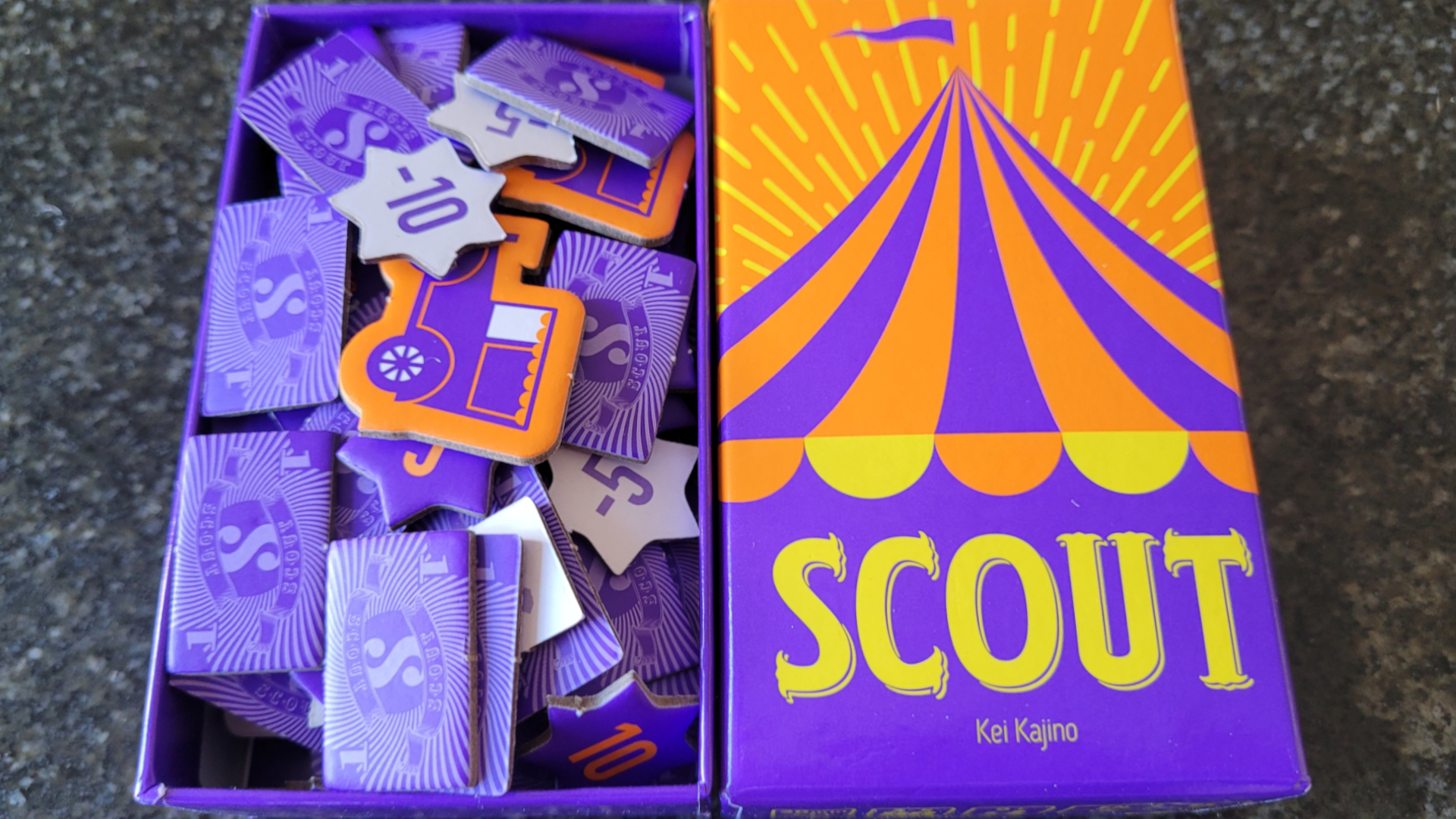
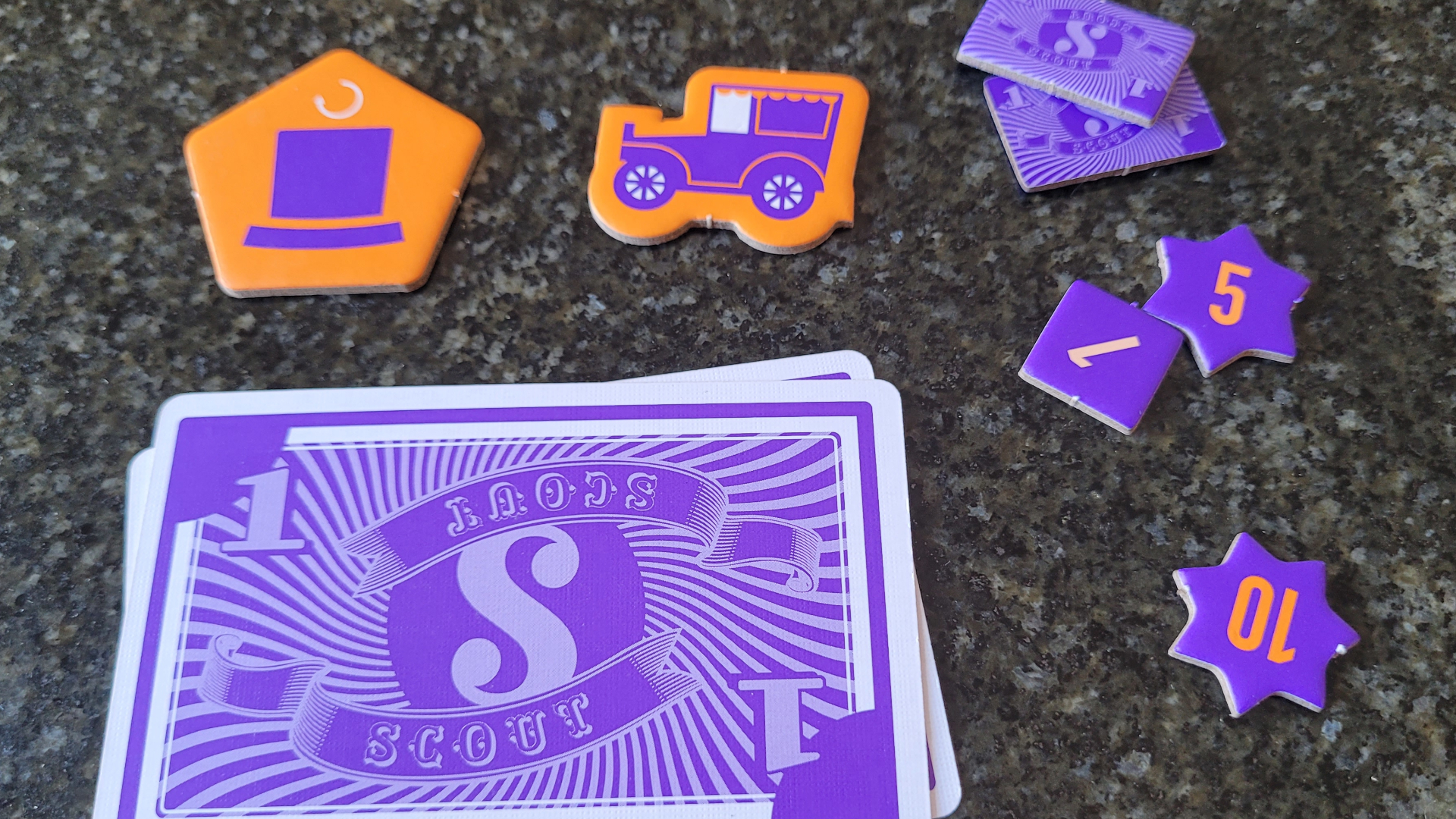
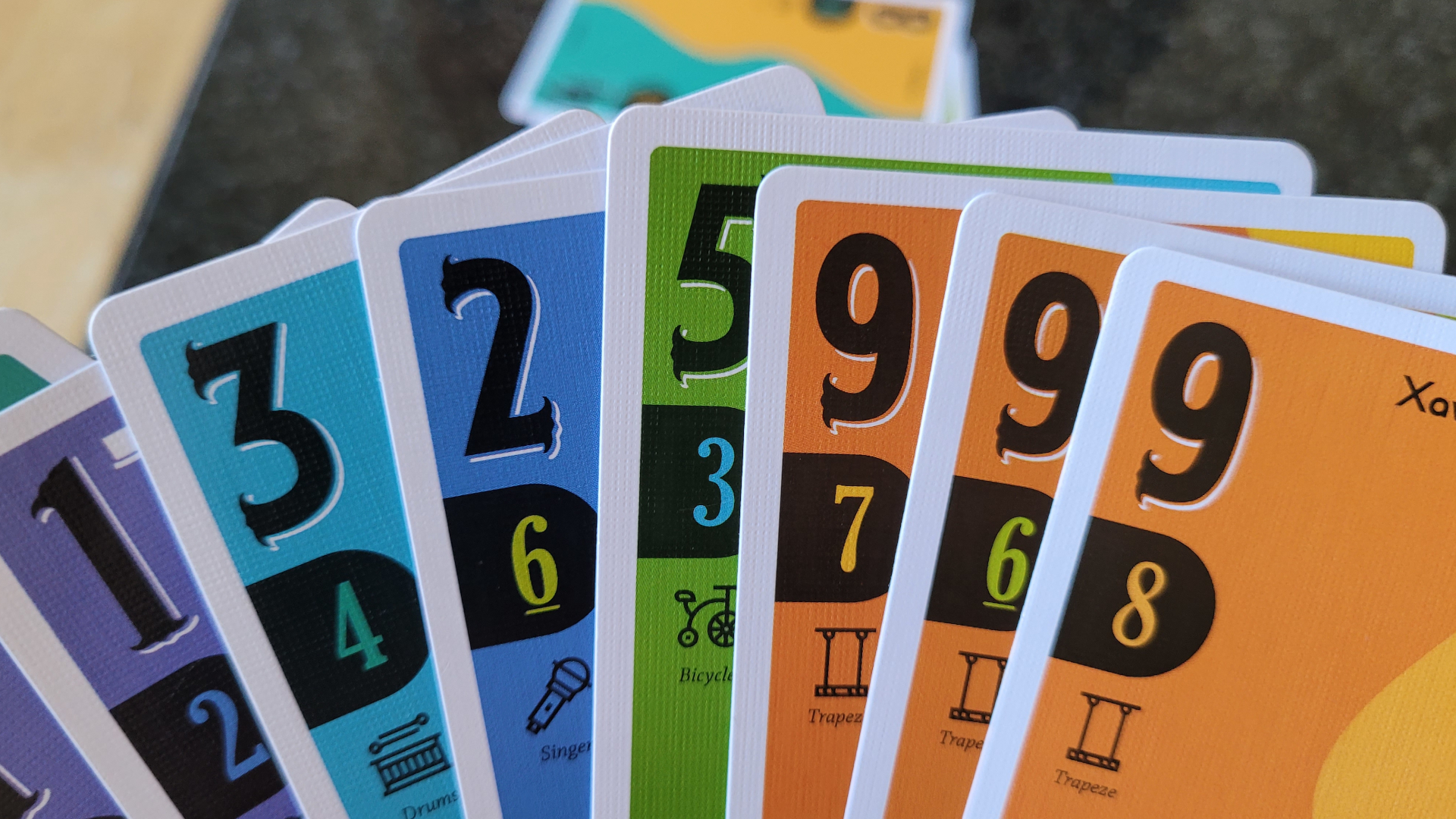
Specifications
Reasons to buy
Reasons to avoid
The tabletop community won't always agree on the best card games, but there's one thing everyone seems to say: that Scout is fantastic. This number-based game is easy to understand, quick to run, and will have you begging to play again once a match is over.
Thanks to an incredibly small box, it's perfect for taking with you on vacation as well – it'll fit into a pocket or backpack with no trouble at all. That combined with its accessibility make Scout the ideal card game for families.
✅ You want a quick and accessible game: Scout is easy to understand and fast to play, meaning there isn't a lot of explanation or setup required.
✅ You're looking for a game that's easy to transport: Want a game for on the go? Scout comes in a very small box, allowing it to be slung in a backpack or pocket easily enough.
❌ You want something very tactical: If you enjoy games of deep strategy, Scout may not be weighty enough for you.
❌ You hate luck in games: While skill and timing plays a bigger part in Scout than anything else, there is still the luck of the draw to contend with.
Features & design: Scout won tabletop gaming's most prestigious award – the Spiel des Jahres – back in 2022, and that tells you everything you need to know about this breezy title by Japanese publisher Oink Games. The concept is simple; you'll put down a 'run' of numbered cards in a race to empty your hand, but must beat the previous score on the table. If you can't, you have to pick up new cards. Because you can't change the order of cards in your hand unless you add new ones, it's a compelling puzzle to solve.
So far as theme goes, you play as a circus ringmaster recruiting performers and putting on shows. That's why the art-style is bedecked in bright colors, features a big top, and has an old-timey "showbiz" aesthetic. None of that has much of anything to do with gameplay, but it's a fun idea.
Gameplay: Thanks to its breakneck pace and the sense that you're one card draw away from a lucky break, Scout is the kind of game that will have you asking for "just one more match" every time. You might not get that sense right away, of course; it feels like a simple trick-taking game at first glance. However, it soon becomes anything but.
Luck plays a part in the cards you draw, yes. But good timing and skill are the keys to Scout. It's the kind of game where you can try to get rid of your hand quickly for easy points, but that gives your opponents a chance to do the same… or develop something better. Equally, you could try to build an all-powerful run that rivals will struggle to beat – albeit at great risk of being left behind. This is the balancing act that injects tension into each session, especially when the Scout and Show action (which can turn the tide if saved for the right moment) is thrown into the mix.
Criteria | Notes | Score |
|---|---|---|
Game mechanics | Scout is the kind of game that feels simple to begin with, but will absolutely hook you after a match or two. | 4/5 |
Accessibility | As a light-weight, family-friendly game, Scout is very easy to dig into. | 4/5 |
Replayability | This is the kind of game that changes dramatically depending on the hand you draw, so it should keep you invested for the long-haul. | 4/5 |
Setup and pack-down | You only have to worry about numbered cards and some tokens, so Scout isn't particularly tricky to set up or put away. | 4/5 |
Component quality | The minimalist art-style is reminiscent of 1920s circus shows, giving Scout a good sense of place. The cards and tokens are of a good quality too. | 4/5 |

"You can tell a lot about a game's quality when it's constantly brought up as a recommendation on everything from Reddit threads to forums. Scout is worthy of that glowing reputation. It's also a fantastic size for taking on vacation, which is a plus for family games." Read more: Scout review
Best strategy card game
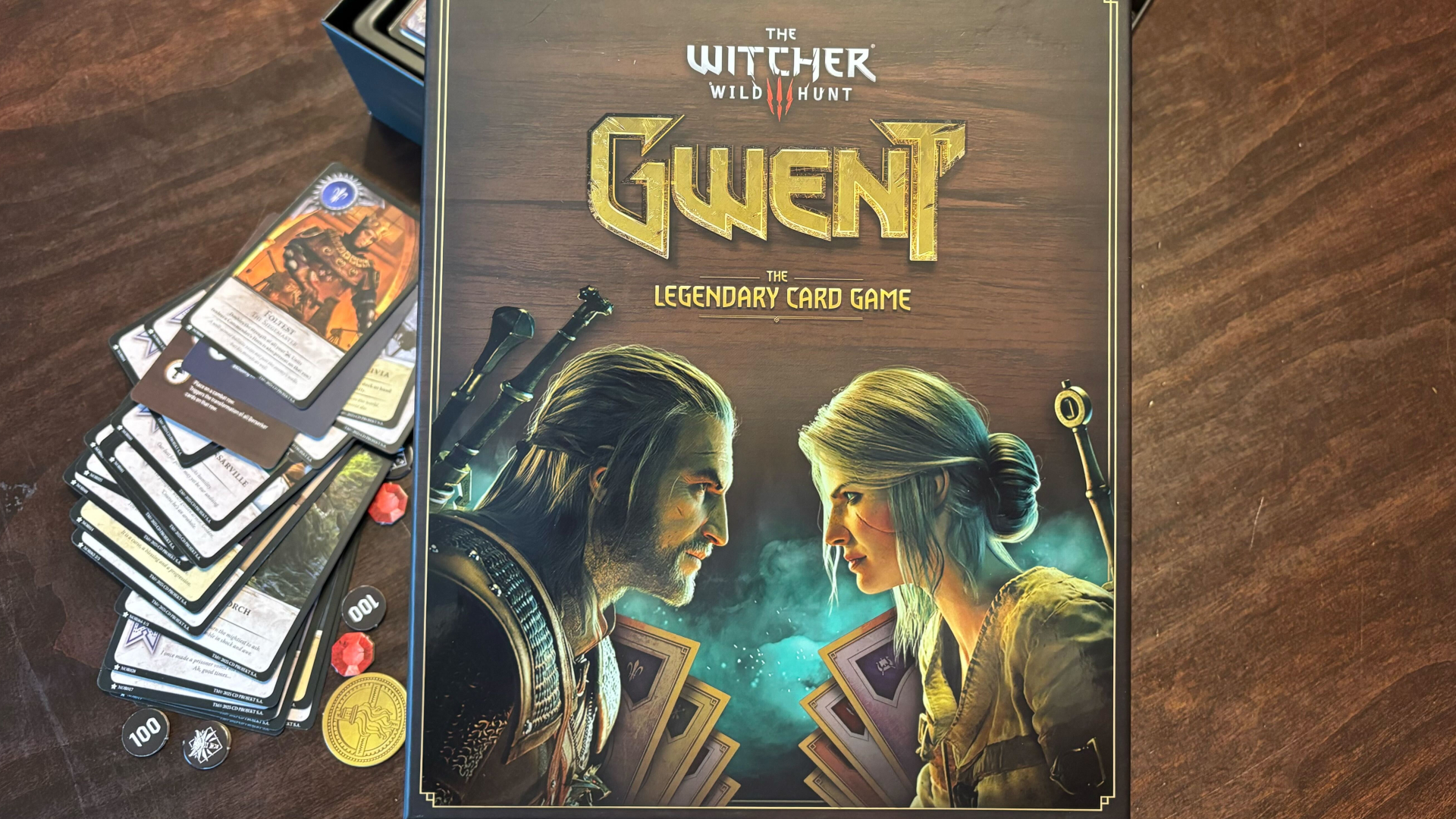
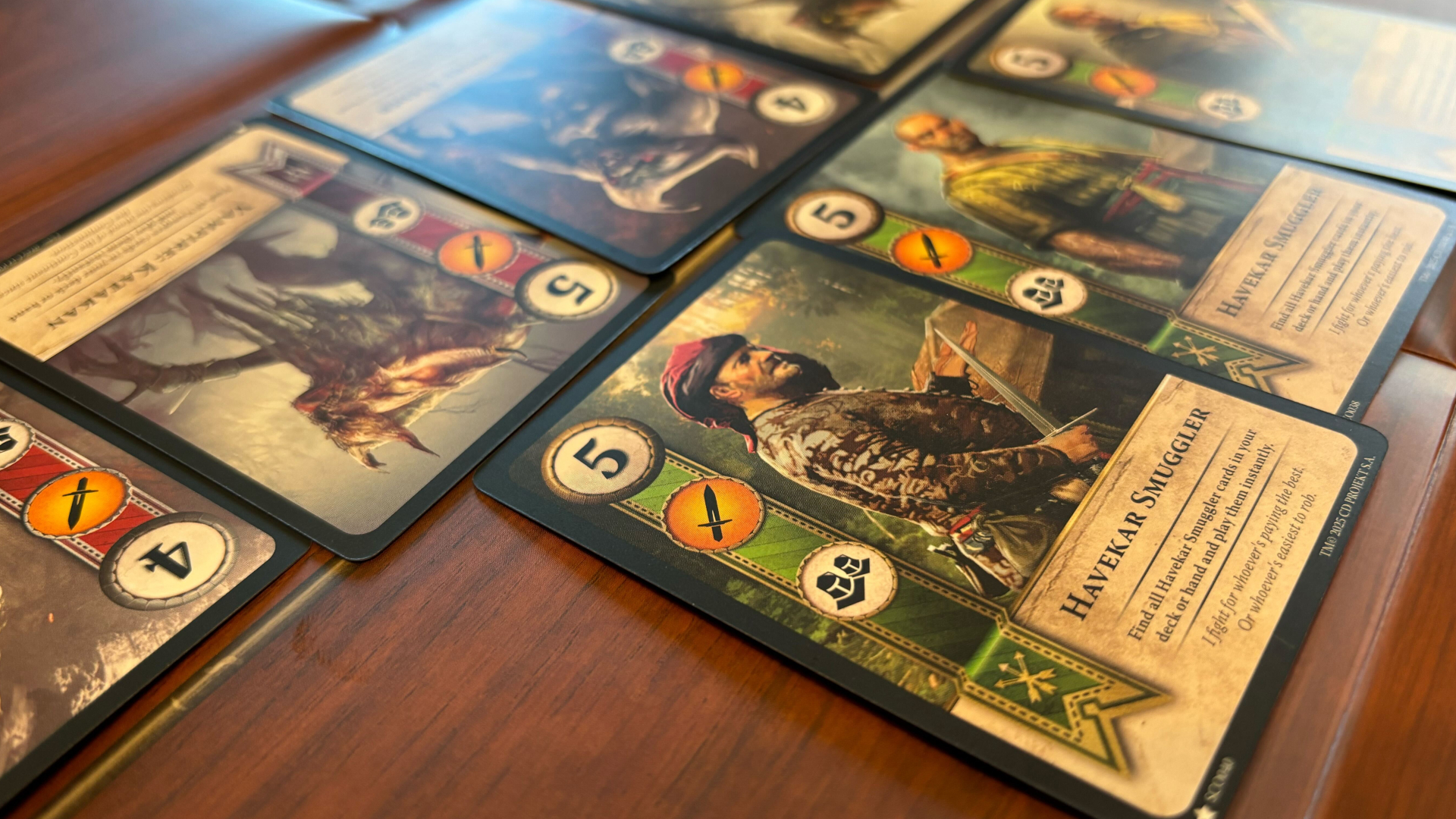
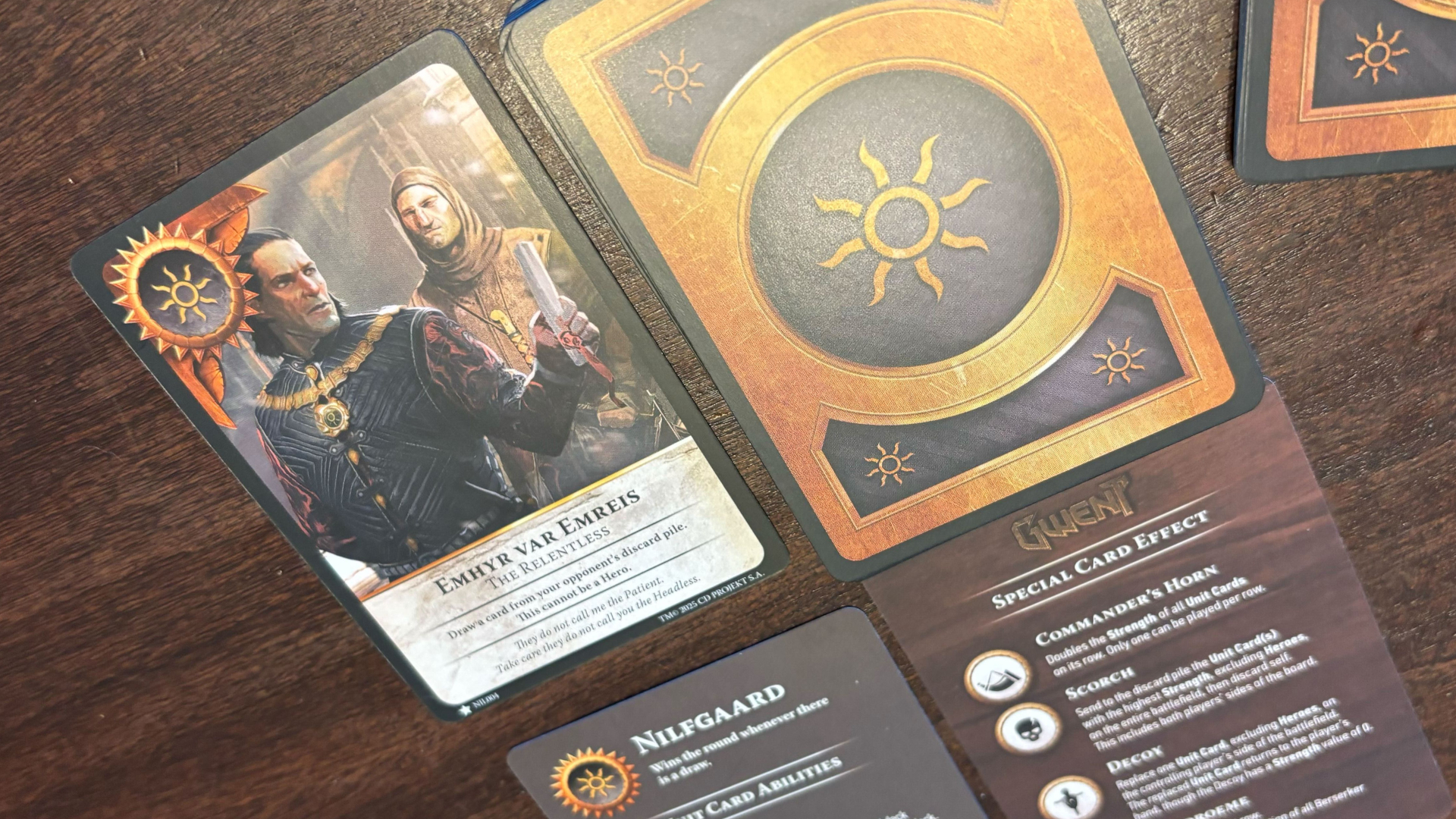
Specifications
Reasons to buy
Reasons to avoid
If you've had anything to do with video games over the past decade, you'll have probably heard about Gwent. This Witcher 3 mini-game took the world by storm, to the point that it spawned a spin-off and has now become an honest-to-goodness card game you can add to your collection. Which you should, regardless of whether you're a Witcher fan; the mechanics are rock-solid enough to satisfy those who don't know their Geralts from their Dandelions.
Some quality-of-life changes have been made to this version too, though it's still the same game fans know and love. There's a reason Gwent has survived in various forms for more than a decade, and it's because you'll be hard-pressed to put it down after getting a taste.
✅ You like building different decks and approaches: Because there are so many different cards included within the box, there's a slightly staggering number of decks and strategies you can make.
✅ You're fed up of TCGs: Everything you need is included in the box, so you don't need to worry about purchasing endless boosters or trawling second-hand retailers to find what you need.
❌ You weren't keen on the original Gwent: This is a faithful adaptation, so anyone who didn't like the original game won't appreciate this one.
❌ You hate the Witcher: Although you certainly don't need to be a Witcher fan to enjoy Gwent, those who actively dislike the franchise may find it too much to ignore.
Features & design: Much like the original game, your aim in Gwent is to earn points by laying down rows of cards across three rounds in a best-of-three match. However, the skill lies in deciding when to drop those cards. You can get straight into the action by using one of the five starter decks – Nilfgaard, Northern Realms, Scotia'tael, Monsters, and Skellige – or create your own using the box's 446 cards.
These all feature artwork from The Witcher 3, with appearances from major characters like Geralt and Yennefer. It's disappointing that the playmat provided here isn't up to the same quality (it's flimsy), but in all fairness you can play without it.
Gameplay: It's true that Gwent is basically an exercise in "Numbers Go Up," but things become far juicier when you start playing mind games with your opponent. Trying to get rivals to burn through their cards is a lot of fun, and bluffing is key here. They can't know for sure if you have a super-powerful card tucked up your sleeve for the endgame, or are just trying to fake them out. When combined with the balancing act of deciding whether to hold fire or hurl more powerful cards at an issue (thus leaving yourself exposed later on),
A session's length will vary depending on how many players are battling it out, but the game is known for being whipcrack-fast. That only adds to an addictive loop established by the digital version years ago, particularly because it never feels like someone is guaranteed a win or loss due to their initial hand of cards.
Criteria | Notes | Score |
|---|---|---|
Game mechanics | Gwent's core loop is rock-solid, and deserving of a chef's kiss. | 4.5/5 |
Accessibility | This isn't exactly a party game, and a few of the symbols could do with clarification. | 3/5 |
Replayability | The volume of cards, decks, and combinations therein is staggering. | 5/5 |
Setup and pack-down | If you're just using premade decks, Gwent isn't much of a headache to get set up. | 4/5 |
Component quality | The box and cards are good quality, but the playmat leaves something to be desired. | 2.5/5 |

"There's a reason that Gwent, the Witcher card game from The Witcher 3: Wild Hunt, has been popular this past decade, and the physical card game is essentially a carbon copy of the digital one. Quick and strategic, with some stellar art, Gwent makes for a good time even if you're not familiar with the source material." Read more: Gwent: The Legendary Card Game review
Best party card game
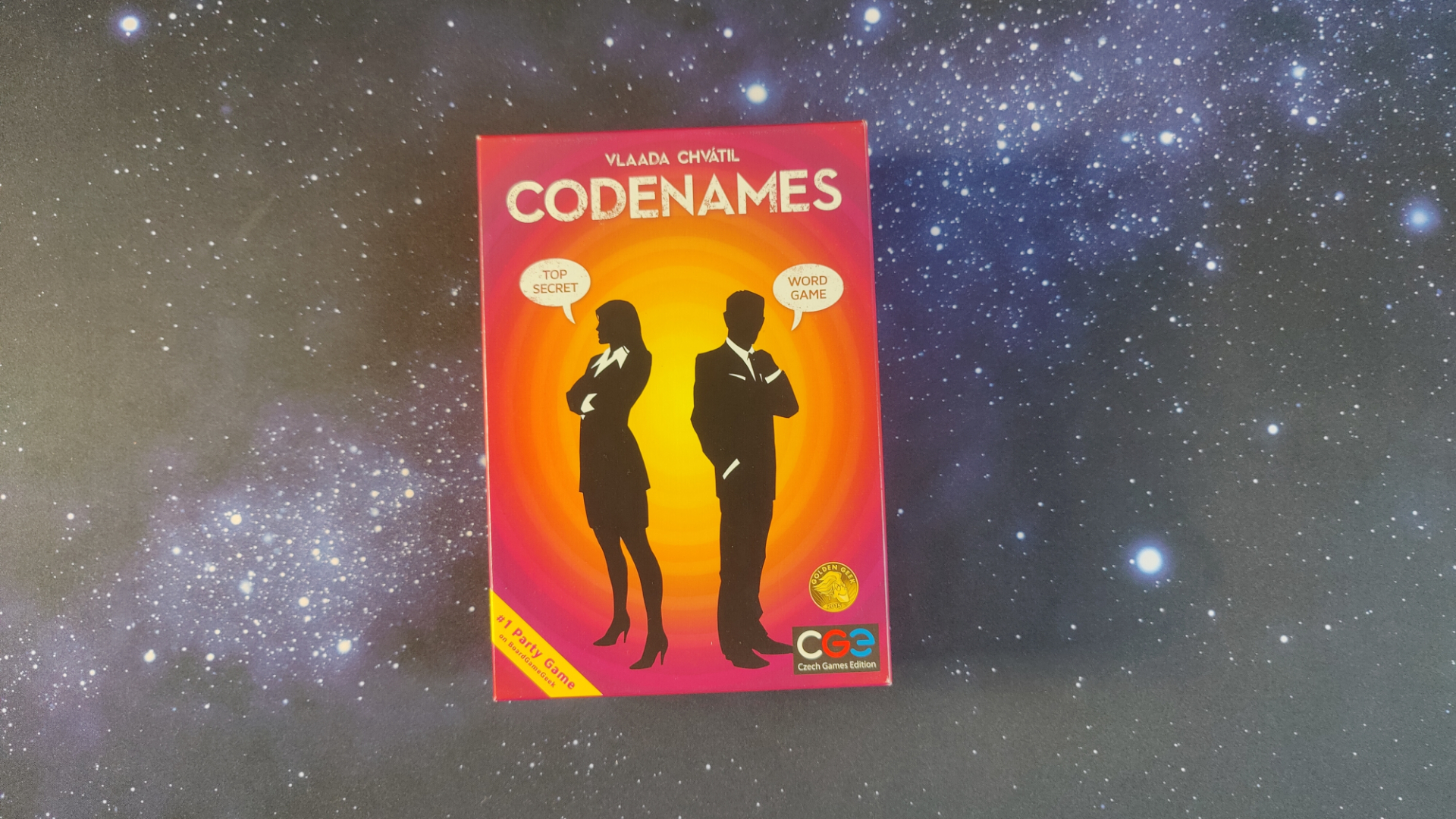
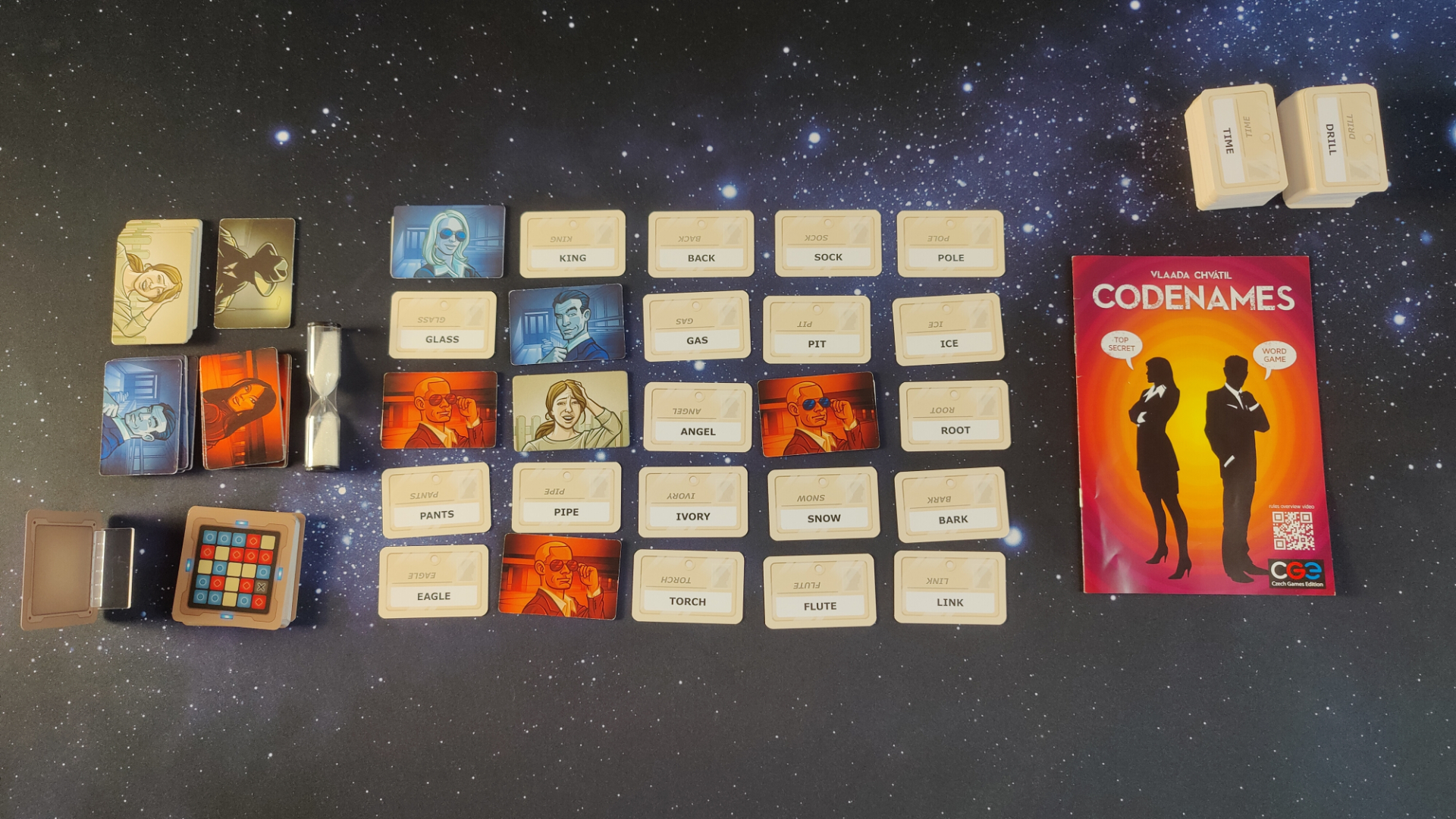
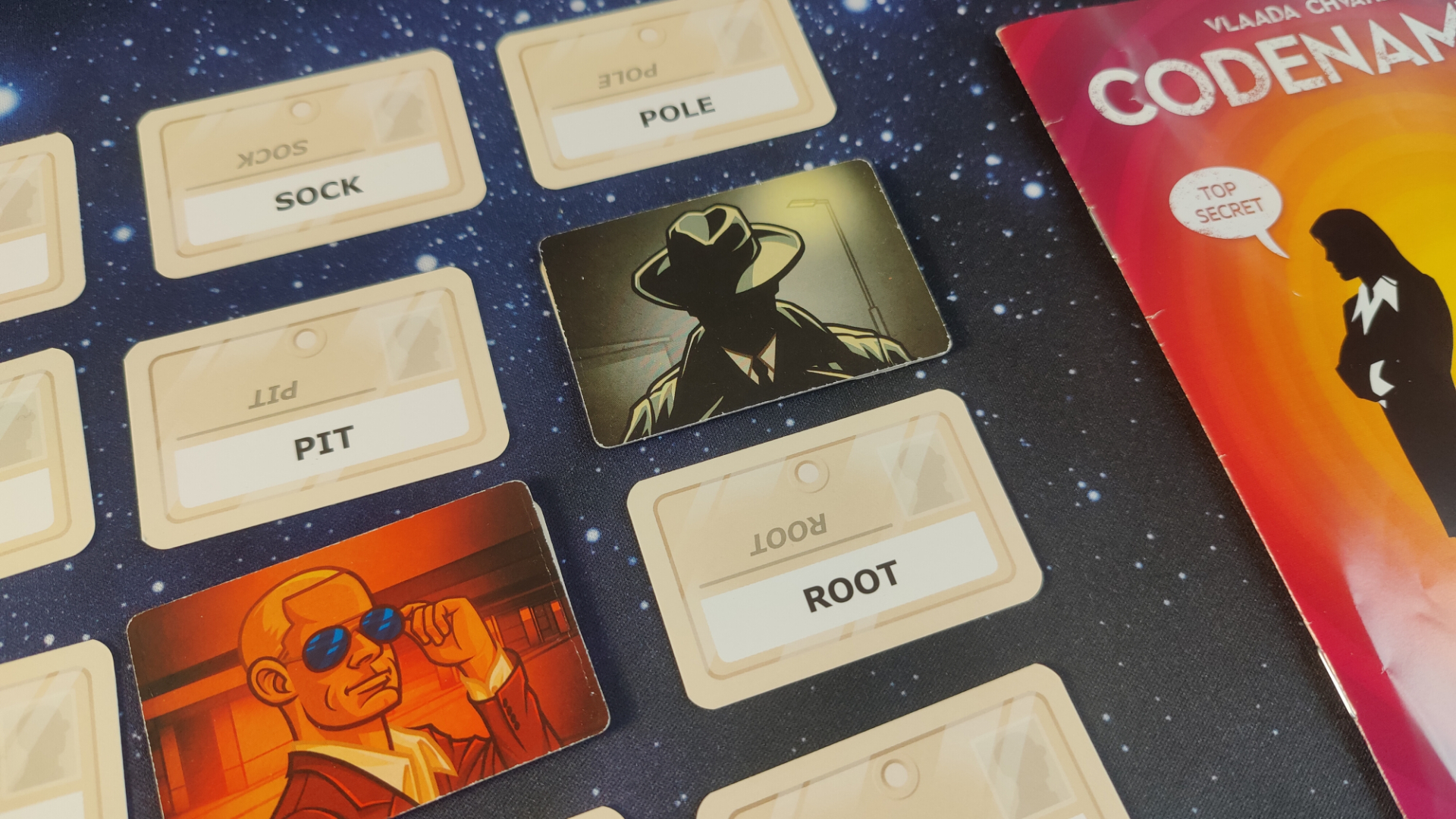
Specifications
Reasons to buy
Reasons to avoid
Your mission, if you choose to accept it, is this brilliant party card game. Codenames took the world by storm back when it launched in 2015, and for good reason; this word game is perfect for parties, family get-togethers, and pre-game night warmups alike. I've been playing for years, and I'm still not bored of it.
Part of the fun is how versatile Codenames is. There are hundreds and hundreds of possible combinations, so even though the core concept remains the same, no two games will be.
✅ You'll be playing in a larger group: Codenames is at its best with a lot of players – ideally four or more.
✅ You want a good icebreaker: No matter whether you want a game that'll get everyone talking or something to ease your group in to game night, Codenames is up to the challenge.
❌ You have a smaller group: Three's normally a crowd, but not here. This game doesn't really work as well unless you have a larger group.
❌ You struggle under pressure: As a head-to-head challenge where you're giving out clues or trying to solve the riddle, Codenames won't suit those who struggle with pressure.
Features & design: Codenames thrusts you into a world of spycraft and espionage, so prepare your best James Bond impression. After dividing into two groups, you'll lay out a grid of 25 randomly-drawn word cards. Innocent bystanders and secret agents from each team are hidden under these, but only one player per side – the spymaster – knows where they are. Both sides have to uncover their agents, and the spymaster gives clues to help with the search. Unfortunately, that clue can only be a single word connected to one or more cards laid out on the table (e.g. you might say "fries" for "potato"). Because your turn ends if players reveal innocent bystanders or the other team's agents, you've got to be careful that your clues don't lead them to the wrong conclusion.
This is all wrapped up in suitably covert artwork that's all stylish shades, suits, and trenchcoats. Even the cards are modelled after those manilla envelopes you see in films containing state secrets.
Gameplay: Despite being pretty simple, Codenames is the kind of game that keeps on giving. Are spymasters better off providing clues for a single card, guaranteeing that their team picks the right one? It's a solid plan, but you may get left behind. Or should you try to use a word that can connect to multiple cards, knowing your team may get the wrong end of the stick?
That's why Codenames is so enthralling. It's a tricky needle to thread, especially because the cards are designed to have multiple connections. You may give a clue without realizing that you've led your side to the wrong conclusion, or your rivals' card. I can't tell you how many times my team have talked themselves out of the right answer and chosen something random either – it's both hilarious and hand-wringingly exasperating. Suffice to say, you're gonna make plenty of memories with this one.
Criteria | Notes | Score |
|---|---|---|
Game mechanics | Codenames is easy to get the hang of, but has more mind-bending depth than you may initially give it credit for. | 5/5 |
Accessibility | This game really isn't hard to understand, making it a great choice for gamers and non-gamers alike. | 5/5 |
Replayability | There are numerous cards included in the box, and they're double-sided, so you aren't going to get repeats very often. | 5/5 |
Setup and pack-down | The most complicated thing about setting up Codenames is the 5 x 5 card grid. | 4/5 |
Component quality | Codenames isn't the flashiest game, but it does the job nicely with the spy aesthetic. It's sturdy enough to last the test of time too. | 4/5 |

"If I'm heading to a party, Codenames is usually the first game I'll choose to bring with me. It's one everyone can get their teeth into without any fuss, results in lots of laughs, and sets the mood nicely. A must-have, if you ask me." Read more: Codenames review
Best card game for 2 players
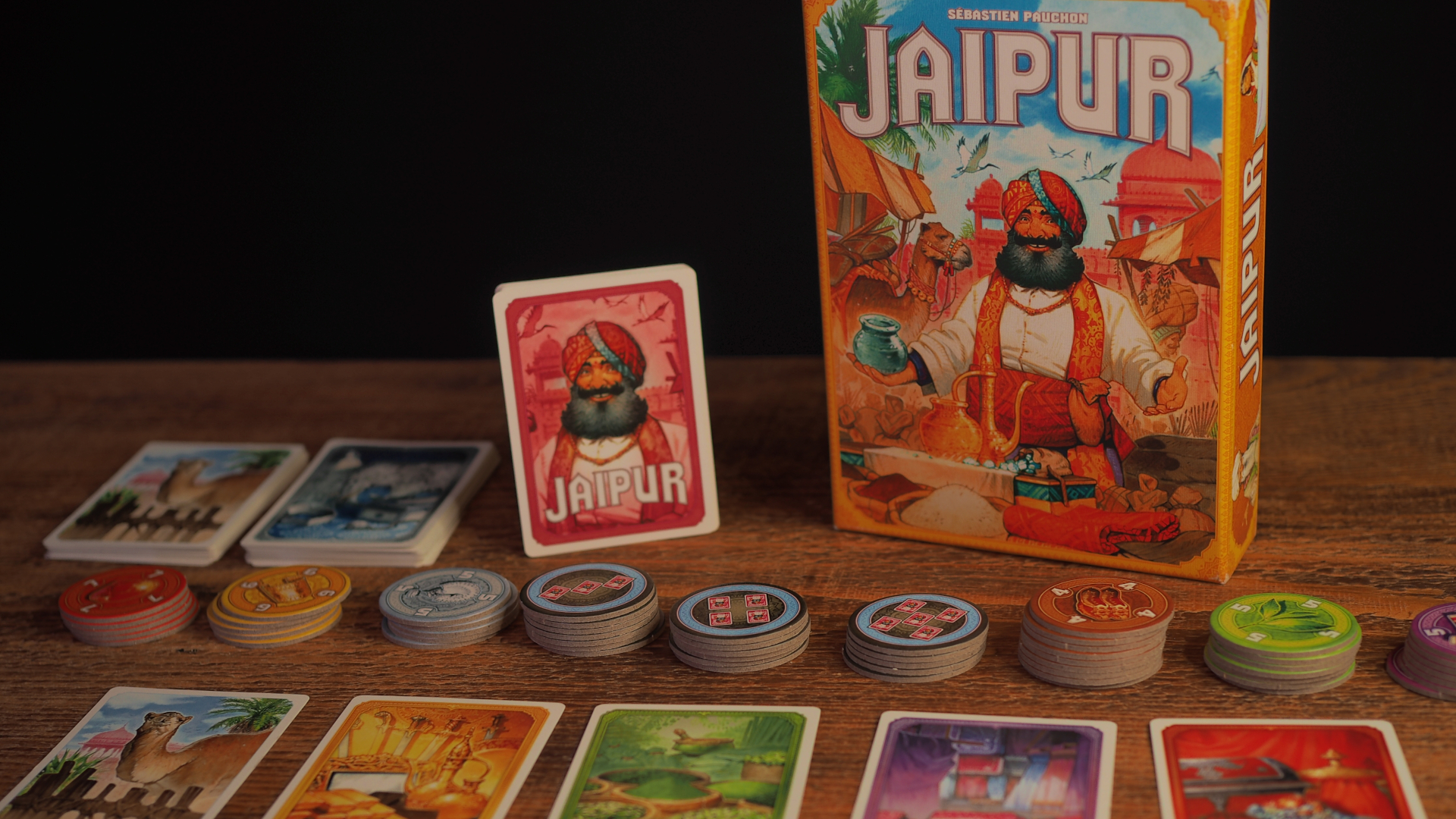
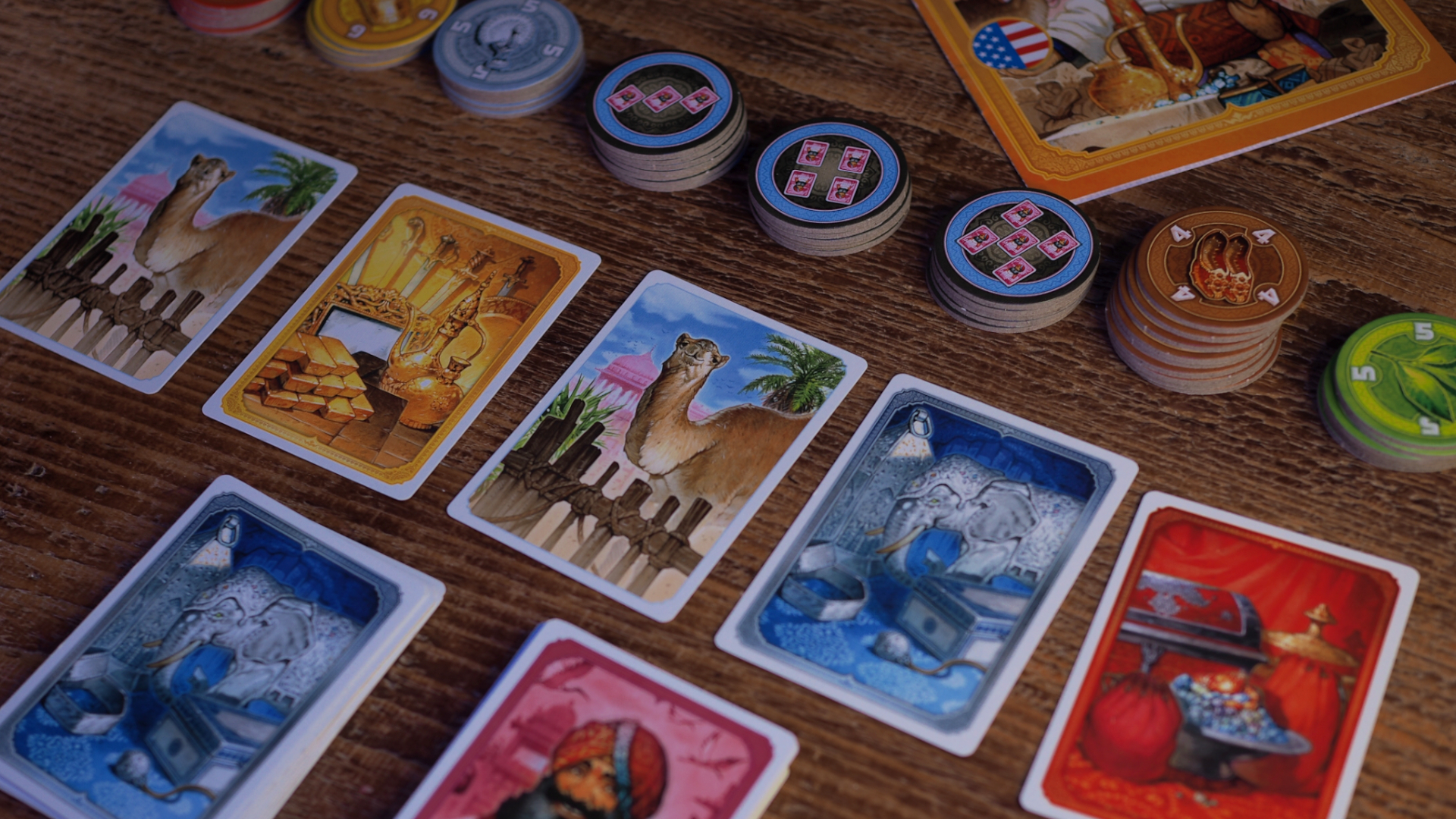
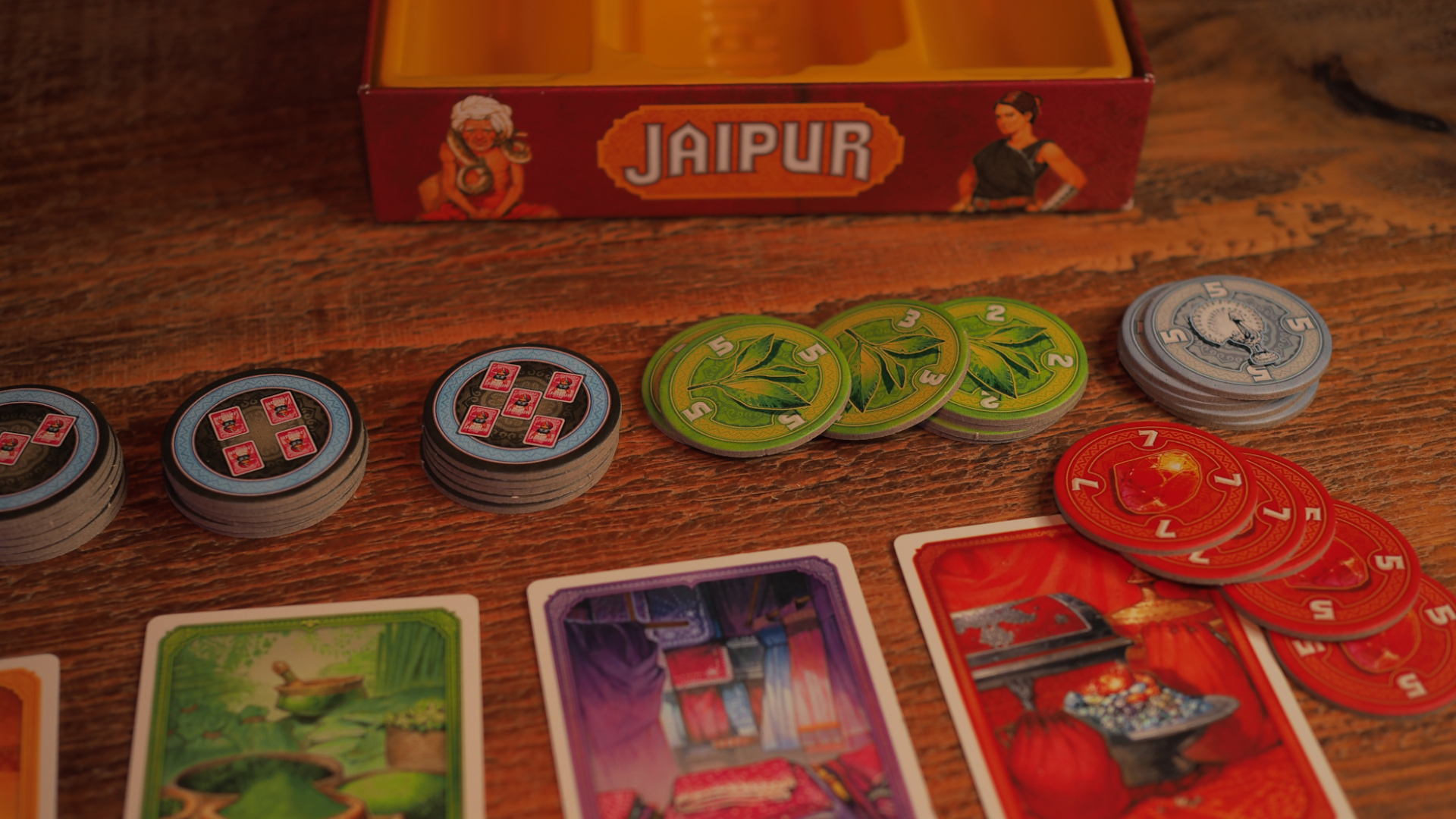
Specifications
Reasons to buy
Reasons to avoid
If you ask me, Jaipur is one of the best card games ever made. Accessible, vibrant, and wonderfully replayable, I think it deserves a spot in everyone's collection. It's the king of "just one more."
It's a great choice no matter whether you're looking for something to play on date night at home or on vacation either. It's easy to transport and doesn't take up loads of table space, which is why it's a game my wife and I take with us whenever we're heading on a trip.
✅ You value replayability: There are some games that grow tiresome once you get the hang of them, but Jaipur has more longevity than that. Your tactics will vary depending on the cards drawn into market.
✅ You want a travel game: Thanks to a reasonably-sized box and the fact it doesn't take up much room at a table, Jaipur is good to take on vacation or just when you're out and about.
❌ You want a game that scales: If you'd like the option of a game that can add more players, Jaipur won't suffice. It's strictly for two players.
❌ You enjoy complex strategy: While there's an art to winning Jaipur, it may not be enough for armchair tacticians.
Features & design: Players take on the role of traders in the Indian city of Jaipur, and their challenge is to earn themselves an invite to the maharaja's court. The only way to do this is by becoming the best businessperson in all the land, so leave your compassion at the door.
You'll feel as if you're in the lap of luxury regardless of whether you win or lose, at least. The colors truly pop in their depiction of precious goods from jewels to rugs, and evocative card illustrations whisk you away to the sights, smells, and sounds of an Indian market.
Gameplay: There's no set way to go about winning Jaipur, and that's one of its greatest strengths. Want to buy and trade cheap items quickly? Knock yourself out. Would you prefer to collect high-ticket goods for a larger payout at the end? That's OK too. You've got room to experiment, and there are plenty of strategies to try out.
Just keep an eye on your opponent. Trading wins you chips from a limited stack, and these are worth points. Unfortunately, those points decrease as you go further down the pile. That means your efforts may be wasted if your rival beats you to the punch. The result is a fascinating balancing act.. Is it perfect? No. Not being able to add extra players is disappointing, and it won't satisfy gamers who enjoy particularly strategic experiences. Still, Jaipur will grab you by the scruff of the neck and refuse to let go nonetheless.
Criteria | Notes | Score |
|---|---|---|
Game mechanics | Jaipur's central loop is simple yet entrancing. | 4/5 |
Accessibility | This game isn't a struggle to get into, so you should be playing with the best of them before long. | 5/5 |
Replayability | There's enough variety in Jaipur to keep you coming back for more, largely thanks to the randomized market that necessitates different approaches each time. | 4/5 |
Setup and pack-down | Jaipur's components are limited to cards and tokens, making it a straightforward game to set up or put away. | 5/5 |
Component quality | The inviting art style is full of warmth and color. The cards and tokens are pretty hard-wearing. | 4/5 |

"I was introduced to Jaipur years ago after visiting a board game cafe, and boy, am I glad it got recommended to us. It's been a constant companion ever since." Read more: Jaipur review
Best card game for kids
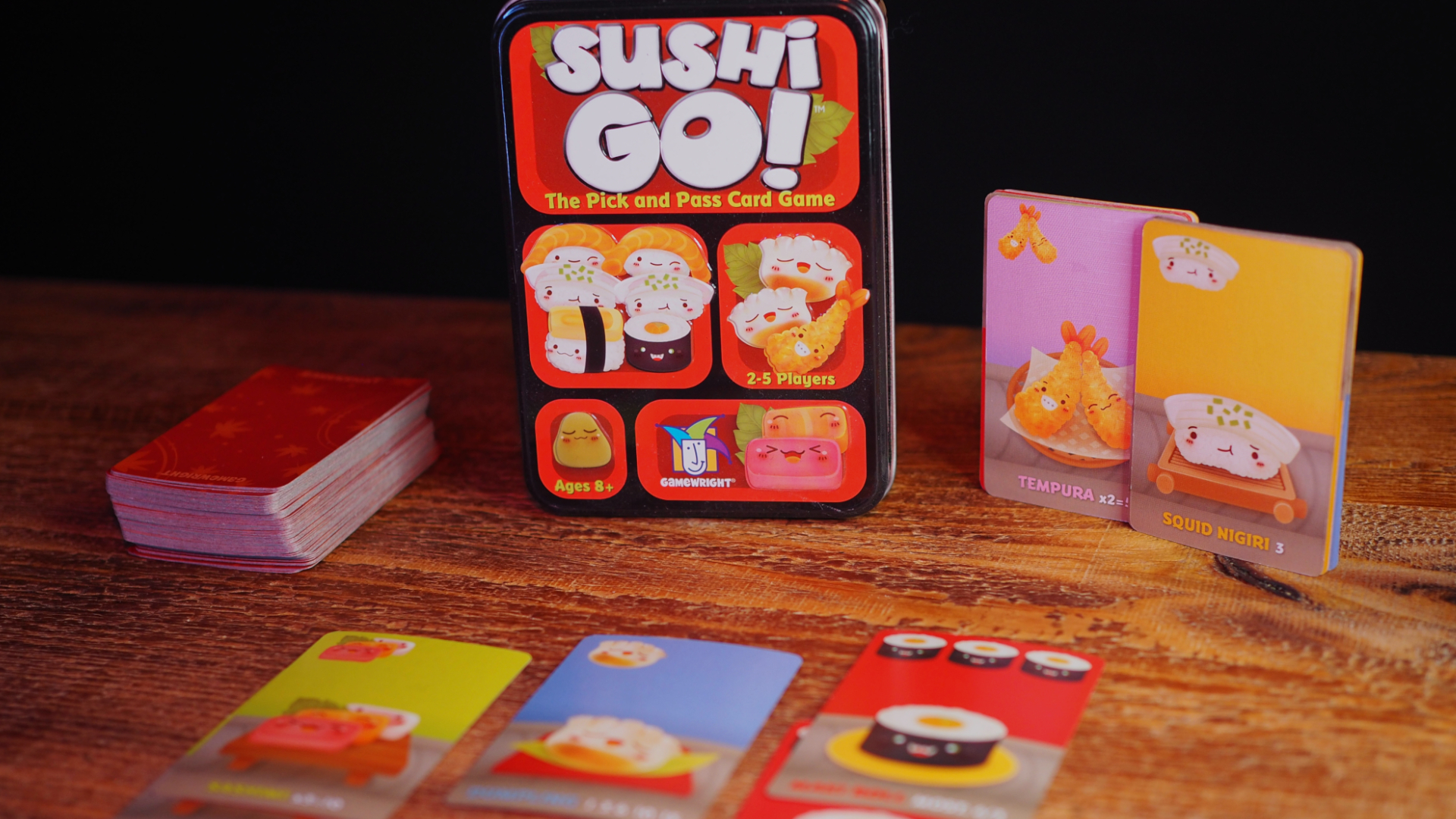
6. Sushi Go
Our expert review:
Specifications
Reasons to buy
Reasons to avoid
There's something special about this adorably bizarre little game; it's got the secret sauce of being easy to understand, fast-paced, and the kind of game that'll have your kids begging for "just one more go." Because Sushi Go can be finished in under 15 minutes, you'll also find yourself playing round after round. This leaves us with one of the most appealing games for kids who struggle to sit still.
Blissfully straightforward rules are to thank for that, and you could probably explain them in a 60-second elevator ride.
✅ You want something quick: Because matches only last 15 minutes (or less), it's great for younger children or those with shorter attention spans.
✅ You want an on-the-go game: Sushi Go comes in a hardy metal tin and doesn't need much in the way of table space, so it's great for travel or vacation.
❌ Your child hates math: You'll need to add up the points values of cards to find out how you've done, so math-averse kids may want to sit this one out.
❌ You have very young children: It may be tricky for younger kids to understand the strategy involved here.
Features & design: Sushi Go tasks players with creating the best 'meal' from a deck of cards in front of them, and certain combinations are worth more points than others. In a spicy twist, some will only pay out if you have the most of a particular item.
That's harder to achieve than you'd think. Because everyone must pass their hand of cards to the next player every single turn, you never really know what dishes you’ll be able to choose from next. You can start to figure out what your rivals are gunning for, too…
Gameplay: Creating delectable dishes in Sushi Go is a simple yet strategic experience everyone can enjoy. Although some adding is required at the end of each round, it isn't complicated – most will pick it up quickly.
The game's rapid-fire mechanics should hold the attention of kids without much by way of patience as well. Matches are a doddle to set up, packing away is a breeze, and there's just enough tactical consideration to keep older children invested.
In fact, this is far from being a kids-only affair; Sushi Go is a great warm-up act for games night with grown-up friends or family. I've got many fond memories of playing this at parties, so I'll often sling it into my backpack when I'm heading to a get-together.
Criteria | Notes | Score |
|---|---|---|
Game mechanics | Sushi Go isn't a complicated beast, and even though that means it has an expiration date, it's a delight in the moment. | 4/5 |
Accessibility | You can explain the rules and get things set up exceptionally quickly, and it's easy to understand once you get going. | 5/5 |
Replayability | Because your strategy will change depending on what you draw, every session of Sushi Go feels as fresh as sashimi. | 4/5 |
Setup and pack-down | Seeing as it's just a deck of cards stored in a portable tin, Sushi Go isn't difficult to organize before or after a game. | 5/5 |
Component quality | Thanks to hard-wearing cards and a sturdy, metal tin to put them in, Sushi Go should be able to weather regular use. | 5/5 |
How to choose the best card games
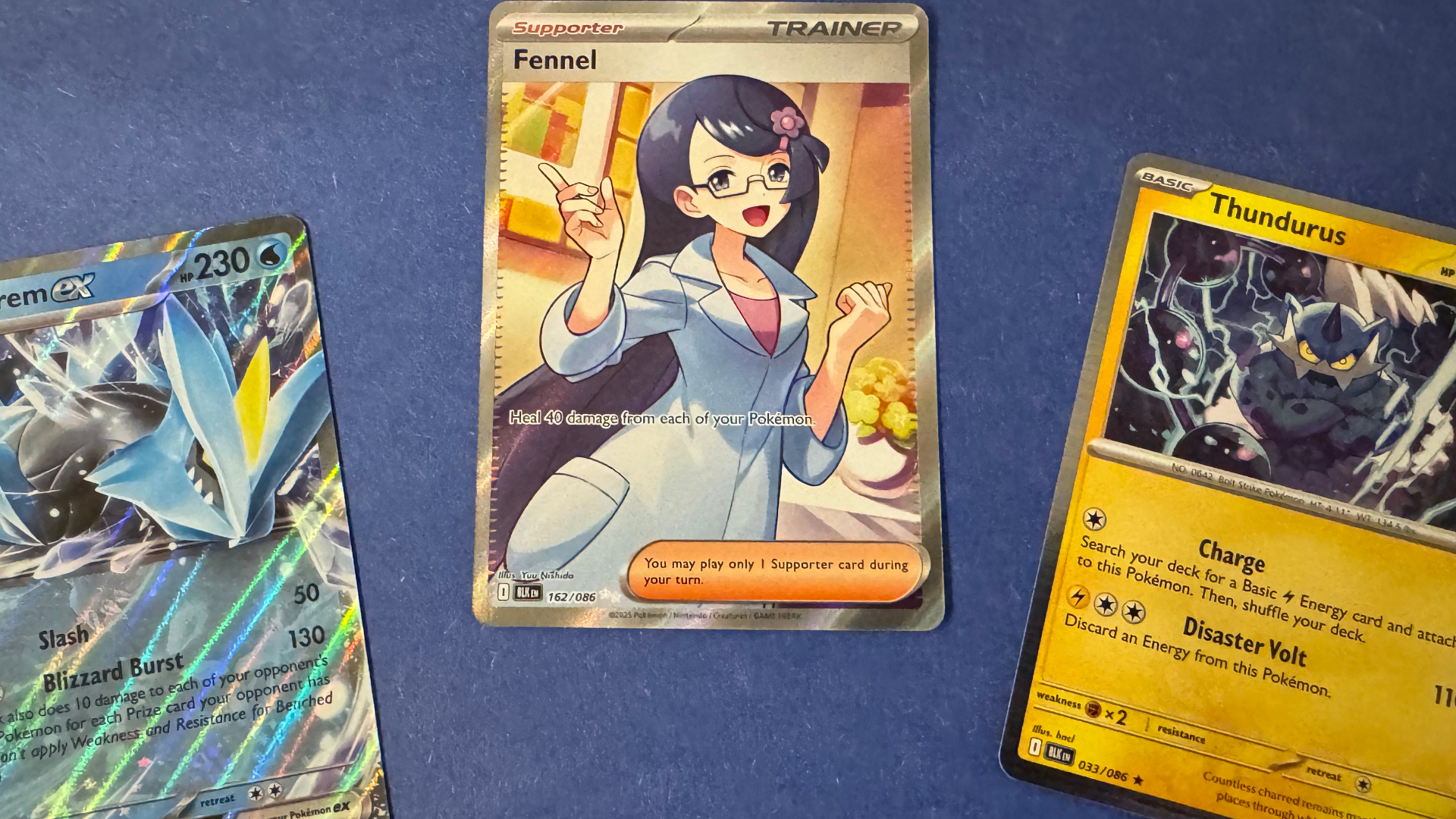
The shelves are positively creaking beneath the weight of all the card games out there right now, so how do you choose which one to play? The GamesRadar+ team and I have been doing this for quite some time, so here's what we always consider when hunting down a new favorite.
❓ How complex do you want the game to be?
Deciding how 'heavy' you want your card game to be is a massive help, because it can remove loads of suggestions from the off. Hoping for something easy-going and suitable for a party? You should probably avoid complex strategies like Gwent or Magic: The Gathering. We always include a complexity rating on each of our recommendations so that you know what to expect at a glance, ranging from low to high.
👪 How many players will there be?
This may sound like an obvious question, but it's really useful when deciding which card games will be right for you. If you want something that'll work with four people, the likes of 2-player Jaipur aren't gonna cut it. You'll find the player count up top on all of our recommendations.
⏱️ How long do you have?
It's another straightforward question, yet it's well worth considering. If you're short on time, opting for an in-depth experience that lasts multiple hours isn't going to be ideal. I've included a rough estimate of how long each session will be in the suggestions on this page.
How we test the best card games
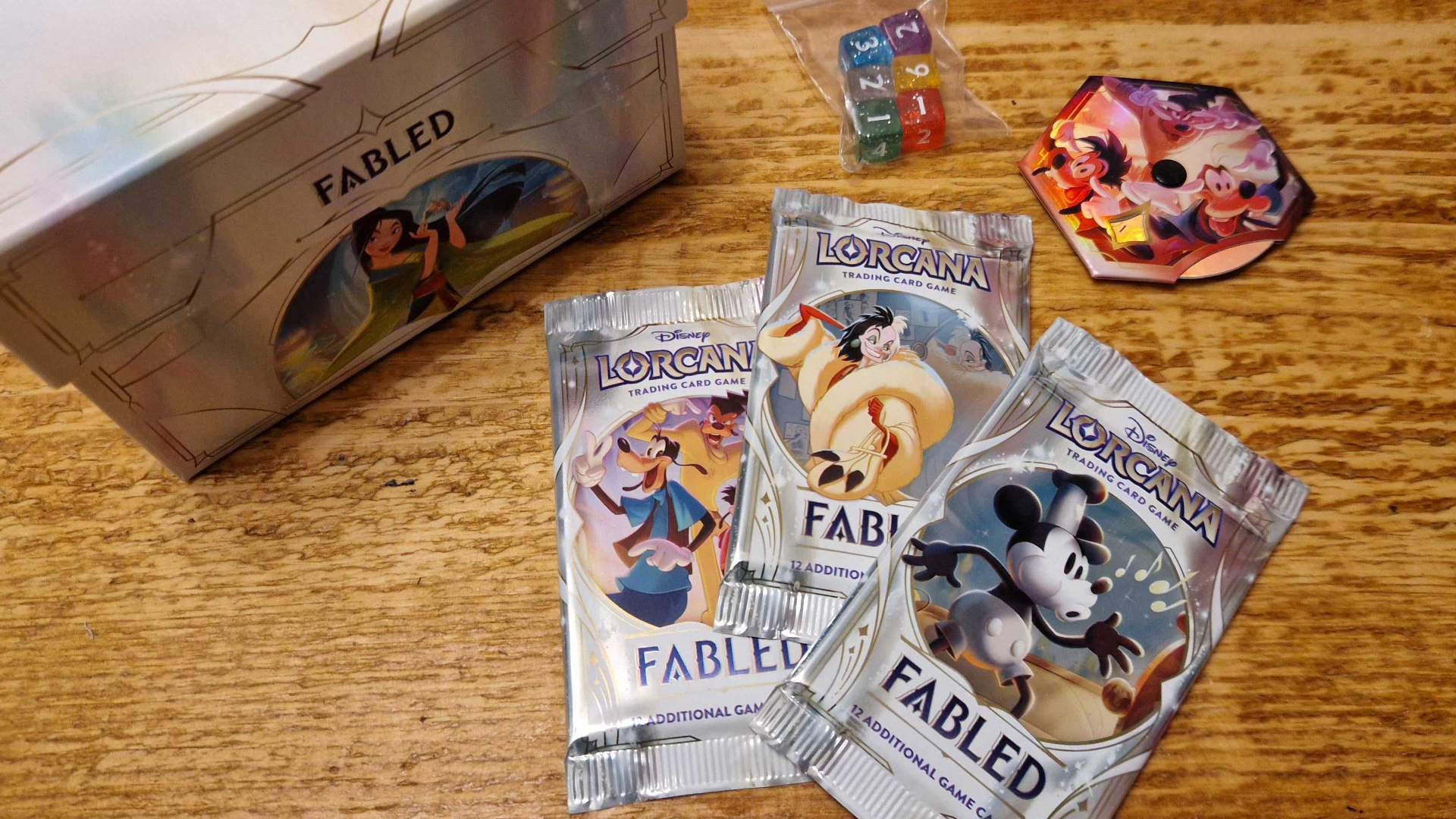
The way we test card games is crucial to our work, and we strive to provide as rigorous a process as possible so that our readers receive the best recommendations. Along with GamesRadar+ writers, editors, and contributors calling on years of experience covering the industry, we also rely on a tried-and-true methodology that unifies our approach to reviews.
We always begin by reading through the entirety of the rules as originally presented (e.g. without referring to third-party how-tos) to provide an unbiased look at the game's accessibility. Our team then plays the game in question multiple times (ideally with a variety of player counts, where applicable) to get a better understanding of how it holds up to repeat use.
Once we've run a game through its paces, we write up our critique with the following sections.
- Introduction: This is where we lay out the "headlines" of our opinion, followed by a "buy if/don't buy if" section that should provide an at-a-glance summary.
- Features & design: A game's elevator pitch is discussed here, along with critique of artstyle and component quality.
- Gameplay: The bulk of the review is usually spent discussing what it's actually like to play.
- Expert verdict: Whenever possible, we ask our reviewers or team-members to comment on card games to provide an expert opinion.
This is followed by a ratings table that breaks things down into bite-size chunks, as seen in the example below.
Category | Notes | Score |
|---|---|---|
Game mechanics | We break down the game's systems here. | ?/5 |
Accessibility | Will you struggle to get into the game? Find out here. | ?/5 |
Replayability | Is this game going to last? We discuss that in this section. | ?/5 |
Setup and pack-down | How easy is the game to lay out, or put away? | ?/5 |
Component quality | Do we think the game's components are going to last? What's the art like? We dish the details. | ?/5 |
Further details can be found in our 'how we test board games' guide, or the full GamesRadar+ reviews policy.
Best card games FAQ
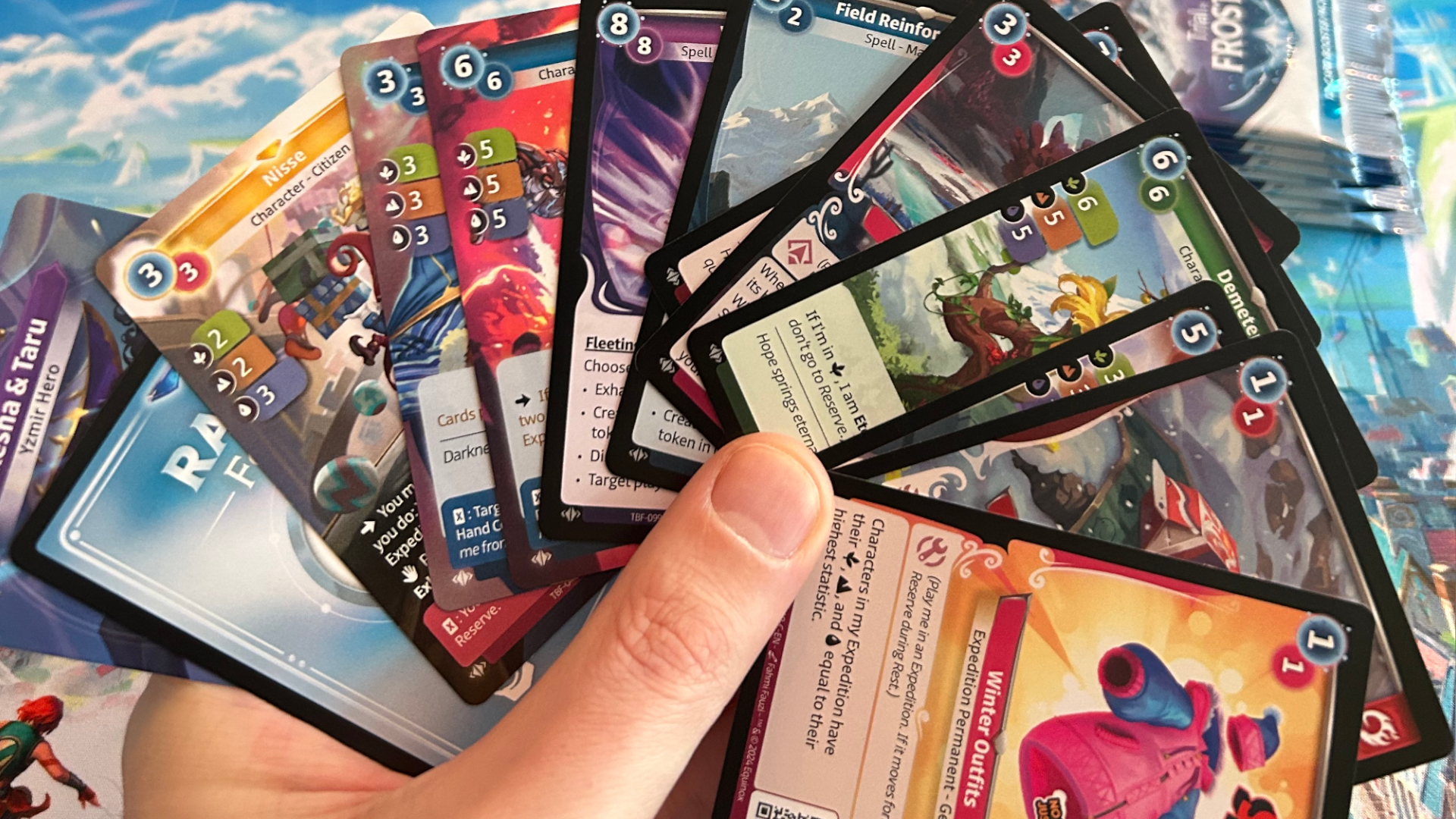
What are the top 10 card games?
Finding the top 10 card games depends on what you mean by 'card game.' If you want something you can play with any deck (e.g. abstract games), we're talking Poker, Solitaire, Rummy, and the like.
However, if you mean original games bought separately with their own unique cards, I have a suspicion (based on Amazon's best sellers list) the top 10 list would include the Pokemon Trading Card Game, Uno, Monopoly Deal, Magic: The Gathering, and popular newcomers like Flip 7.
What is a trading card game, or TCG?
You may have seen the term "trading card game / TCG" thrown around a lot, and you might be wondering what that is. To put it simply, these are ongoing games that allow players to create original decks or use premade ones that can be tweaked with new cards bought in randomized booster packs or swapped with friends. Fresh batches of cards (usually called 'sets') come out every few months.
Magic: The Gathering, Pokemon, Disney Lorcana, and Star Wars Unlimited are all trading card games.
Where can I buy the best card games?
While most big-hitters like Amazon and Walmart sell the best card games, they only tend to stock particularly high-profile, classic, or mainstream options. For anything beyond that, you're better off checking out independent retailers. Here's a rundown of the stores we keep an eye on when seeking board game deals.
US
- Amazon: Best for variety and range
- Miniature Market: Best discounts
- Target: Good for family games
- Walmart: Offers on family games
UK
- Amazon: Best for variety overall
- Magic Madhouse: Surprisingly good deals
- Zatu: Great hobby-game deals
- Argos: Stocks classic family games
Should I wait until Black Friday to buy the best card games?
Even though we see some of the most tempting offers during November's sale, I wouldn't suggest waiting until then to pick up the best card games. They tend to get discounts throughout the year, and while these price cuts might not be as deep, the reductions are still very good on the whole.
Want more suggestions? Looking for something new? Don't forget to check out the best family board games, or even the best tabletop RPGs.
Weekly digests, tales from the communities you love, and more

I've been writing about games in one form or another since 2012, and now manage GamesRadar+'s tabletop gaming and toy coverage. You'll find my grubby paws on everything from board game reviews to the latest Lego news.
